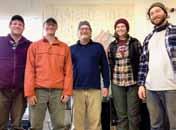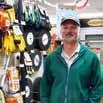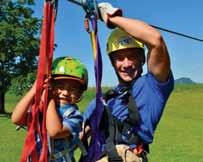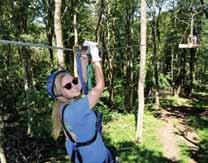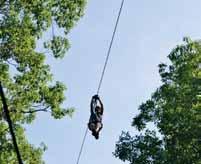












































This year, Floyd Virginia Magazine celebrates fifteen years of serving the people and the businesses of Floyd! From those who planted the seeds, to those who didn’t want to see it end, to those who continue on, the history of the magazine is one that encompasses what is best about Floyd, Virginia. It was born of community pride and sustained by community love and cooperation. It has come to be not only a promotional hub for local businesses, and not only a comprehensive resource for visitors, but also a lasting volume celebrating the people, history, and culture of Floyd. And it all began with a shared notion.
In 2007, Graphic Designer, Luis Garcia, was looking for a way to earn a living in Floyd. At the time, he was working on a publication for Hotel Floyd. It was a promotional magazine that would be used for advertising and marketing in the rooms of the hotel.
Though it was limited, this small publication inspired Luis. He thought that a larger publication, encompassing all of Floyd, could be a really good idea. After all, there was no other publication at the time that was promoting Floyd as a whole. This was also before Floyd had an established and organized method to provide tourism information.
It was with lots of ideas already in mind that he then set out to make some inquiries. After all, a project this ambitious would need a team.
As it turned out, Dee Wallace, David Larsen, and Gaynell Larsen of the Laurel Creek Farms (LCF) Group, had been tossing around the idea of a publication that would help to promote their Real Estate development business, along with other businesses in Floyd.
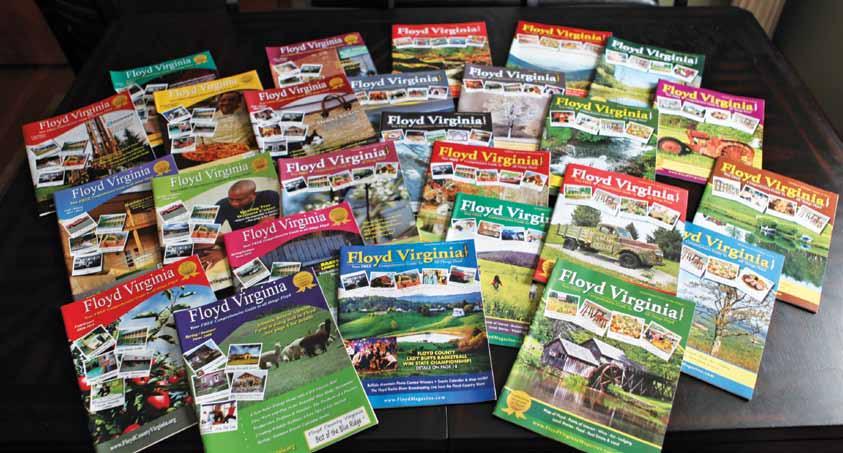
As Dee recalls, Luis, along with Rob Cluxton, met with the LCF team in their office at the Village Green and they spoke well to the point that they were all proud of Floyd. Luis had been looking for a strong concept for the magazine and wanted to do his part as Graphic Designer.
“LCF was already doing a lot in Floyd,” says Luis. “I was the outsider coming in.”
As they were already connected in the community, LCF brought a lot to the table during that first meeting. One of the first things to be decided was that the magazine would be a project with an ending. When they initially sat down, they wanted to come up with an agreement that everyone could commit to.
Ultimately, it was decided that Floyd Virginia Magazine would be a five-year project spanning ten issues. Dee would serve as Senior Editor/
Story Writer. David and Gaynell Larsen would both do Ad Sales, as well as editing. Rob Cluxton would in charge of Distribution and Ad Sales, and Luis Garcia, of course, would be the Graphic Designer.
“The five-year plan,” says Rob, “projected what everyone would do and how it would all play out. Everyone knew what part they would play. It was like a band. There was the guitar player, etc. Everyone came together to make it happen.”
“It was Dee, however,” recalls Luis, “who brought the team together and kept everything on track.”
When the team first started reaching out to the community for advertising and stories, the reaction was immediate excitement. The business community especially had been looking for something like this for a very long time.
After a lot of hard work, the very first issue of Floyd Virginia Magazine was released in Spring of 2008! “It was a little bit of everything,” says Luis. “Stories plus promotion. We wanted to focus on the idea that someone would really want to read the stories.”
The debut issue featured stories from Floyd Pharmacy, The Jacksonville Center for the Arts, Cross Creek, and more. And it’s no secret that the thirty-six-page, full-glossy issue was an instant hit!
“From the start,” says Rob, “the excitement was huge for a full color magazine. People were really open to the idea, and they just couldn’t believe it had been put it together.”
There was also significant enthusiasm for the new advertising vehicle in town! After pioneering advertisers like Schoolhouse Fabrics and Franklin Design took the initial plunge, it wasn’t difficult to convince other businesses for subsequent issues.
George Lipson, former owner of the Green Label Organic warehouse and storefront in Floyd, says the magazine was the most successful advertising vehicle they ever had. “People came in and said they saw the ad in the magazine,” says George. “We had the inside front cover for a long time, and it was worth every penny. Over 50% of the foot traffic at our store was driven by our ad in Floyd Magazine.”
George goes on to tell us that he also used, and helped, the magazine by taking stacks of copies to shows they would visit. They would hand out the magazines as promotion, which would then inspire many folks to visit Floyd.
George also believes the magazine to be more than just a liner for the bottom of the bird cage. “When people come to Floyd,” he says, “they take the magazine home with them. It’s not a pick-it-up-throw-it-away kind of thing. Even if they didn’t visit our store, they would often go home and buy online. I never threw them away. I even took back issues along to shows and handed them out.”
David Larsen agrees. “Businesses loved the shelf life for the magazine. It lasts months, where an ad in the paper lasts just a month or two. The information stays relevant.”
The group had originally talked about producing 10,000 copies, but it ended up being 15,000. As Distributer, Rob Cluxton took the copies out into the community, going farther and farther afield to get the distribution spread out. He even took copies along to other cities and counties, such as Roanoke, when doing other delivery work. Rob even built magazine stands, some of which can still be found holding copies of the magazine, today.
Since LCF owned and developed Chantilly Farm, they found it the ideal place for making the magazine available to visitors. “Chantily Farm was a great place to distribute,” says Dee. “We made sure every visiting party got a copy. People really love to pick it up and read it.”
It only took a few issues for the magazine to become an integral part of Floyd, which was what the group had intended from the start. They had envisioned the magazine as a hub for all things Floyd: culture, business, history, and tourism. There was even a website in those early years.
It became so successful so quickly that businesses would wait anxiously for each new issue. Existing distribution points began calling for more copies, as their initial supplies would fly off the racks. Additionally, businesses that were not distribution points began calling to say they wanted it! Eventually, even the Chamber of Commerce came to them asking to have it for the Chamber.
“None of us had really done anything like this,” says Dee, “so it inspired us to do it our own way and keep doing it better.”
Luis Garcia agrees. “We worked hard, even though none of us were professional.”
Eventually, however, five years had gone by. Everyone on the intrepid team had fulfilled their original commitments. It was time for the LCF group to focus all their attention, once again, on business.
Luis and Rob, however, were not quite ready to walk away. The magazine was a huge success, and by this time, many businesses and organizations in the community had come to incorporate the publication in their business models through advertising and distribution. It had even become a highly valued tourism guide for visitors.
But the two men couldn’t do it on their own. When Luis wound up moving to Florida, it added the challenge of working remotely. With ad sales, story-gathering, editing, and distribution already weighing down their shoulders, Luis’ wife, Heather, stepped in to help with editing.
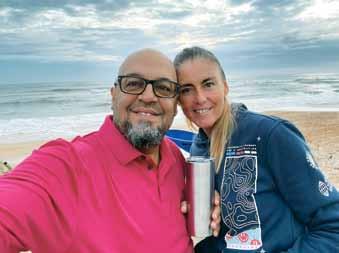
“I was doing sales, bringing in ads, checking with advertisers, and doing distribution,” says Rob. “When Luis went to Florida, it was all on me, except graphic design.”
As fate would have it, John Brill was a graphic designer looking for additional work.
“I first picked up a copy of Floyd Magazine at the Grandin Theater,” says John, “in Spring of 2010.” As luck would have it, the Grandin Theater was one of the drop points Rob had selected for those times he was doing
other delivery work in Roanoke.
“I was a freelance graphic designer at the time,” John continues. “After looking at the magazine through the eyes of a designer, I really felt I could make it shine.”
John reached out to Dee Wallace. The two of them met and John showed her his portfolio. Though she thought it looked great, Luis was still serving well as the magazine’s graphic designer. Because of this, nothing came of the interview at the time.
Fast forward to January of 2013 and John was once again looking for more freelance graphic design work. He saw Floyd Magazine in his notes and thought it might be worth it to follow up. He reached out once again to Dee Wallace. Since Luis was just taking over as Publisher at that time, Dee passed John along to Luis.
Luis and John decided to meet at a bridal magazine network event in Blacksburg where John was able to present his portfolio once again. Luis hired him on the spot.
“I thought I was good,” says Luis, “but when I saw good work, I knew it and realized it.”
From John’s perspective, that meeting was equally auspicious. “I look back at that series of events and think of how fortunate I was to be in the right spot at the right time.”
With the team now complete, Luis, Rob, Heather, and John all got down to the business of continuing Floyd Virginia Magazine. They found a rhythm and a process that worked, even though half the team would wind up in Florida.
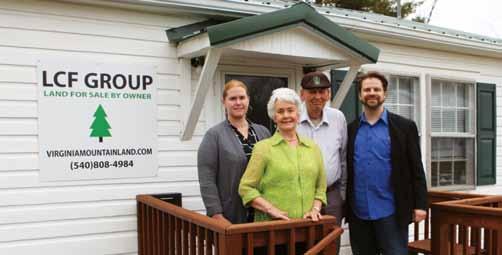
“It was automated, and it was like a well-oiled machine,” says Rob. “Everyone could still contact Luis online and it was just like he was there.”
For the next four years, Floyd Virginia Magazine continued its mission to promote the people and businesses of Floyd. As it had over the first five years, the popularity of, and love for, the magazine continued to grow. It was such a beacon of excellence that people began approaching to be part of it.
“It was amazing the number of times we were approached by other graphic designers wanting to be part of the magazine!” says Rob.
Even the LCF folks, though they were no longer part of the production team, continued to support and promote the magazine. To this day, David and Gaynell continue to carry copies in their car for distribution.
It was during this second age of the magazine that John McEnhill became Executive Director of the Floyd Chamber of Commerce. McEnhill had actually submitted content for the very first issue back in 2008, focusing on the Center for the Arts. One of McEnhill’s first projects as leader of the Chamber was to create a Visitor’s Center, and to really leverage the magazine for one of its greatest purposes.
“It was a great resource for residents,” says McEnhill, “but also for tourists.” McEnhill would often hand it to visitors asking questions and say, “Here…this is a great place to start.” The Visitor’s Center always keeps back issues on hand because it’s not just a ‘current’ magazine. “It’s got a long shelf life!” says McEnhill. “It’s never outdated. The stories are always relevant, informative, and entertaining.”
The Visitor’s Center found that the magazine was also particularly helpful for new residents, as well as being a great resource for highlighting new businesses.
2017 saw no Floyd Magazine due to unforeseen difficulties. By this time, however, John Brill had become such a supporter of the publication
that he didn’t want to see it fade away.
“I got a hold of Luis and pitched him the idea that if he wasn’t going to continue with the magazine that I would love to have it.” When all was said and done, Luis passed the torch to John, and he was off and running.
Since the magazine had been absent for a year, John’s first order of business was to send out a mass email to all the previous advertisers, letting them know that the graphic designer from the previous five years would be stepping up to the office of Publisher.
John had never relaunched a magazine before, and so it was with significant nervousness that he anxiously awaited the replies. Within twenty-four hours, however, all his worries were laid to rest. Emails started pouring in from businesses signing on with their usual ad buys.
The second order of business was to connect with key people who had their fingers on the pulse of Floyd. “I remember first meeting Pat Sharkey,” says John. “She was so relieved that I was putting the magazine back together. A lot of people missed it, and some had begun hounding her to take charge of putting a new magazine together.”
Pat Sharkey, who was Floyd’s Tourism Director at the time, recalls it well. “The Tourism office wanted to partner and create a magazine,” she says. After speaking with John, however, she was happy to tell them there was no need! It was already happening.
Pat also recalls how John forming that relationship with the Tourism office helped the magazine to grow. With her input, a new Events page was created, and has been a feature in every issue since. “I felt more engaged,” says Pat. “It developed into a real partnership, and the magazine really did reflect Floyd.”
Pat goes on to say, “It was so comprehensive and up to date that many folks thought the Tourism office was directly involved. Watching John take over, I feel like the magazine became awesome for Floyd. Watching tourists and locals utilize the magazine has been awesome. It’s been amazing for promoting and sharing for Floyd.”
With the LCF group’s involvement being five years in the past, and with Luis and Rob having retired from the magazine, if fell solely to John Brill to manage all the ad sales, all the admin, all the story solicitation, and all the distribution in addition to continuing the graphic design.
Rather than this being a burden, John says it resulted in a refreshingly relaxed production flow. “Because I can always depend upon sales, publisher, graphics, and distribution to all know what is going on in each other’s heads!”
The only thing he needed was a good editor. After all, there is only so much one person can manage on their own.
The stories for the magazine come from business owners, organization leaders, artists, and event coordinators. Very few of these job descriptions require Pulitzer-Prize-Winning writing skills, and so many of the stories received need a little extra help to make them shine. It’s also true that many folks are shy about submitting stories because they are not confident in their writing skills, and they don’t want to look bad. For Editor, John brought on his great friend, Vickie Holt.
“I have seen stories before she touched them,” says John. “She has made sure of this! And I’ve seen them afterwards. She has an amazing talent for making every story submission look its best.”
Vickie Has been Internationally published since 1993, with such notable achievements as having been a writer for the popular “ElfQuest” comic book universe. She was also invited to be a contributing entertainment writer for the Indian news platform, UCNews. Most recently, Vickie has found a lot of professional work in regional magazines, including “Collage Magazine”, “ColorsVA”, “Brew Hub Magazine”, “Floyd Virginia Magazine”, and “Radford Virginia Magazine”.
“When John asked me to come on as editor,” says Vickie, “I had only one driving goal…that each article in the magazine be written to professional, journalistic standards.” It is Vickie’s philosophy that a magazine is only as professional as its writing. The more professional the publication, the more seriously it can be taken in the industry.
Back when John first came on board with Luis and Rob, he had completely redesigned the look of the magazine. With a journalisticquality editor also part of the mix, the new Floyd Virginia Magazine looked better than ever.
“The magazine has really come into its own,” says John McEnhill, “and has matured really nicely. Polished and professional. Very inclusive. Even though it’s grown, I can still recognize elements from the beginning.”
Case in point to McEnhill’s observation, there are a lot of things John
didn’t change a bit. “I’m from the school of ‘if it ain’t broke, don’t fix it’. Consequently, as Publisher, I didn’t want to change a thing about what made Floyd Magazine work. I just tried to do a better job at what has made it work all along.”
When Luis Garcia was Publisher, he had made several important changes. One of those changes was to add a map of Floyd County in the centerfold, which turned out to be significantly noteworthy. Among the most consistent pieces of feedback received to this day is how much people appreciate the map. Most especially, it has helped many tourists to get around the area while visiting.
“As Publisher,” says John, “I take some pains to keep the map up to date and have improved this by adding a separate map page of just the Town of Floyd. Also, I always appreciate when someone lets me know of a change or addition that is needed on the map.”
Another innovation Luis made was to select a rural or pastoral scene for the cover image. It’s a style that John has continued, as he feels it does a better job of setting the tone for the magazine. To augment the style, John also seeks to utilize images of recognizable locations around Floyd.
“On the cover,” says John, “we have featured Mabry Mill, Rakes Mill Pond, the rusty old tractor in front of Reed Construction, Mr. and Mrs. Whitlow’s pond with the little boy on the dock, and the old ‘Fresh Produce’ truck in front of Sweet Providence.”
John encourages anyone to let him know about anything visually interesting by the side of the road on Route 8, on Floyd Highway North or South, or on the Parkway. You never know…it might end up on the cover!
Floyd Virginia Magazine is going as strong as ever, with the folks in the area really responding! Sara Dulaney, owner of Dulaney’s Greenhouses, had an article in the Spring/Summer issue of 2021. Like many in Floyd, she had been aware of the magazine for many years but had not yet been part of it. Finally, she decided to advertise, as well as to submit a story. The response, she says, was almost instant. “I absolutely loved the article, and public response was great.”
Sara goes on to tell us that after the article was released, she began seeing lots of new people at her greenhouses, many of whom were from out of town. As for the locals, she says they picked up the article on Friday and visited on Saturday. “They saw the article and had to come!”
Since becoming Publisher, John has also been expanding the content to include nearby communities that are also part of the Floyd market, such as Meadows of Dan,and Riner. As a result, businesses in these outlying communities are beginning to see the same magic happening at their own locations! Connie Hale, co-owner of Buffalo & More Restaurant in Riner, also had a story in the Spring/Summer issue of 2021.
She had been aware of the magazine prior to her story and had always been happy to be a distribution point. “There’s lots of great information and for travelers looking for things to do,” she says, admitting that she loves getting copies into as many hands as possible! “It means a lot to them.”
“Neighboring businesses also talk a lot about the magazine,” Connie continues. “Folks are always very interested. They’re always coming in to read the magazine! Lots of folks use social media for information, but so many people are looking for that tangible thing to hold in their hands and take with them, and people love taking the magazine with them.”
Once the Buffalo & More article came out, it showed just how closely all those readers had paid attention. “People have come in carrying the magazine,” says Connie, “pointing at a picture, and saying ‘we want that food!’”
When considering the current team behind Floyd Virginia Magazine, as well as all the hands that have nurtured it over the past fifteen years, John Brill takes a moment to reflect. “I view myself as caretaker of Floyd Magazine. I am not the first Publisher of Floyd Virginia Magazine, nor will I be the last. We want to make sure that every part of Floyd is represented in the magazine. We try to make sure that there is a variety of stories, not just within one issue, but between issues. Floyd Magazine has a special feel, and we do our best to maintain that.”
John continues, “I am thankful for all the support from our readers, everyone who submits stories, and from our advertisers. Floyd Magazine wouldn’t exist without you. The next five years of Floyd Magazine will look a lot like the past five years of Floyd Magazine. We are going to continue to celebrate the people and entrepreneurs of Floyd, Virginia!”
Floyd Virginia Magazine • www.FloydVirginiaMagazine.com

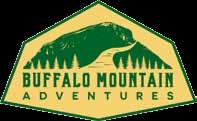


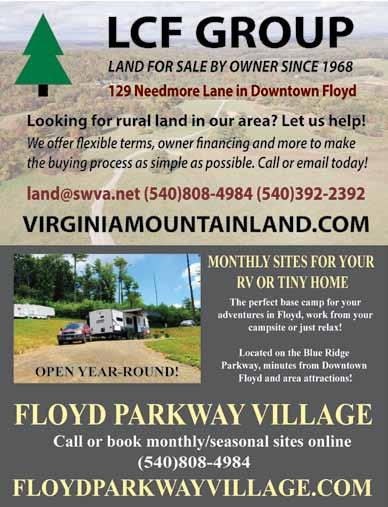

Located at the corner of North Locust Street and Penn Avenue, poised atop a hill across from the Floyd Historical Society, is one of the more charming gems to be found in scenic Floyd, Virginia.
Deriving its name from the building’s historic beginnings, the legendary Schoolhouse Fabrics has been serving the community of Floyd and its visitors since the early 1980’s.
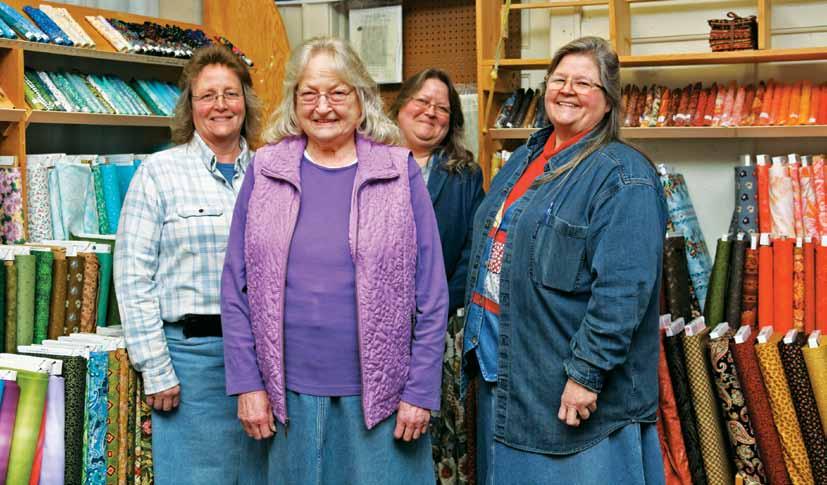
First commissioned by Henry Dillon in 1911, the brick structure was built on the site of the 1846 Jacksonville Academy, which had been established by Governor Floyd, himself. It is said that many of the bricks used in the new structure were part of the original Academy!
The new building began serving as a grade school for the county upon its completion in 1913. Built in the Georgian Revival style, defined by balance and symmetry, the schoolhouse features large and arched windows, dormers, and simple columns to draw attention to the large stoop and entryway.
It operated as Floyd High School until 1939, and later, Floyd Elementary School until 1962. Needing more space, the schools moved again into bigger, newer buildings. This left the old school building vacant and available.
Eventually, Mr. J. Murphy Thompson, who had long lived across the street, purchased the building, and rented out rooms to various small businesses. There was even a daycare!
With affordable space available and having sensed a great need for the service in Floyd’s relatively isolated community, Clester F. Duncan decided that 1971 was the year to pursue her dream of opening a shop for fabrics and other notions. She rented out one of the front rooms of the old school from Mr. Thompson and turned it
by Colleen E. Grecusinto a more modest version of what has since become a superstore – now managed by Clester’s sister-in-law’s granddaughter, Joana Shelor. It had been called “Stop and Shop” at the time, and the business savvy Clester, along with the help of her fun, loquacious, and friendly son, Jerry J. Duncan, built a following.
By the early eighties, extended family, including a teenaged Joana, joined, and worked to grow the business until they took over the entire school building around 1985. That was when Stop and Shop Fabrics Incorporated changed their name to “Schoolhouse Fabrics.”
As the years passed by, however, Schoolhouse lost its founder, the beloved Clester Duncan, in 2004. Just sixteen years later, it also lost her son, the irreplaceable Jerry. Jerry was such a beloved and fundamental part of Schoolhouse Fabrics that staff and customers alike still feel his loss. His presence remains in every fiber. “He always made us feel as if it was as much our business as it was his,” says Joana. “It was really motivating.”
Before his passing, however, Jerry Duncan made sure the business passed safely into the capable hands of Joana’s mother, Lois Ann Acres.
Lois had been sewing since the sixth grade and had been working at Schoolhouse Fabrics for forty years. As the company’s former secretary, she was always the most adept at keeping the books, and her warm smile had long been there to greet the customers and offer assistance. This diligence and dedication had always been recognized by Jerry, who, before his passing, made sure to leave Lois in charge.
This is how she came to be the current owner of Schoolhouse
Fabrics and explains how she’s managed such a successful and seamless transition. Even with such an extensive history and background within the business, Lois remains humble and unpretentious. Still, she has the knowledge and experience to answer most any question and point anyone in the right direction for what they need.
Lois and Joana owe the bulk of Schoolhouse’s success to the family’s commitment to business ethics and customer-focused service. Even the staff is still comprised of family, including Joana’s two sisters, Carolyn Acres and Glynda Woolums, as well as Glynda’s mother-in-law, Arnita. Together, they set themselves apart from larger chains and competitors with the range of materials they offer, as well as their ability to special order and serve their customers more fully. They truly consider their customers to be friends and family, and it shows. These values have been stressed consistently in the fifty-plus years that this family has been in business, and they remain an integral part of Clester and Jerry’s legacy.
Whether collecting silk organza and guipure lace for a custom couture wedding gown, or taking up cross-stitch, there is something for every creative mind at Schoolhouse Fabrics. Sourced from New York, New Jersey, California, and North Carolina, Schoolhouse has just about any type of fabric and anything one would need to create a garment of any kind. From room to room throughout the building’s three floors and annex, materials are organized and grouped by variation, material, and type of craft. The sheer volume of the massive inventory may take several visits to
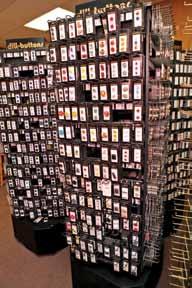
The main floor houses the theme room, with seasonal and sports fabrics. There is also the quilting room, featuring organic and traditional patterns. The craft room, as well as an accessories room, provides threads, yarns, ribbon, trims, buttons, cords, pins, hooks, sewing tools, and everything else one might need to finish off that special project. There are even pillows on this floor!
But it doesn’t stop there. A short trip down the staircase reveals rooms filled with clothing fabrics. There are wools, cottons, polyesters, and blended fabrics to create everything from business attire to snappy day wear, to dressy evening wear. There is even a special room for formal and wedding fabrics, containing an extensive variety of appliques, as well as artificial flowers, trims, and special touches for those most important of special occasions.
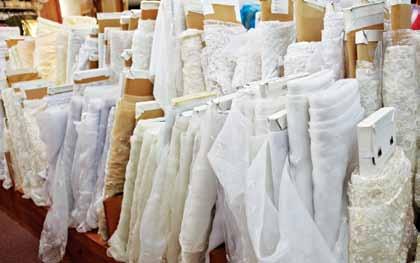
Finally, the topmost level features the finest of fleeces and flannels, along with rolled fabrics for curtains and interior décor, and the annex behind the main building houses the upholstery.
By far, the most popular items are the quilting materials. For decades now, Schoolhouse has contributed both helping hands and gift cards to Floyd’s biennial Quilt Guild Show, which used to take place every other May. Covid temporarily impacted this schedule, as the 2020 show was cancelled, but Glynda and Joana hope it will resume within the next year.
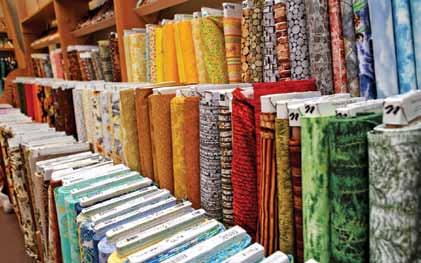
There truly isn’t another comparable store in the region, and it attracts attention from all over the country. When asked from how far her customers have come, Joana admitted to having repeat

patrons from New York State, which is a surprise considering their relative proximity to giants like the world-famous, “Mood.”
There are also some Floyd folks who have Alaskan relatives that make sure Schoolhouse Fabrics is a part of every family visit. This wide-spread following can be attributed, at least in some part, to the ambitious selection the store maintains, as well as their competitive prices. Schoolhouse Fabrics is an invaluable resource to the community, as well as for the surrounding areas and visitors from far and wide! It is most definitely a sewing-craft-lover’s dream!
2021 was both the 90th anniversary of the building and the 50th anniversary of the business. Sadly, still in the thick of the Covid fallout, with staffing shortages and supply chain disruptions, there didn’t seem to be enough time in the day to celebrate. Thankfully, however, Lois, Joana, and the staff at Schoolhouse had maintained such a stockpile of fabric in their numerous rooms that they were able to continue offering a viable inventory for their shoppers.
As a result of their preparedness, Schoolhouse Fabrics managed to successfully serve their customers fully throughout the pandemic, and their business managed to thrive when many others struggled. In the early days of Covid, floods of people bought up large quantities of the stockpiled fabric, as well as lots of elastic, to make masks. After a time, and to this day, drapery and upholstery fabric sales have soared. With so many staying at home, folks have become increasingly motivated to update their interiors.
Joana says that, except for hard-to-come-by wool, shipments are coming in more regularly and frequently now. As a result, Schoolhouse has beefed up the upholstery and upholsterer foam selection, devoting the entire external building to that division. They call it the upholstery building now, and it’s most definitely
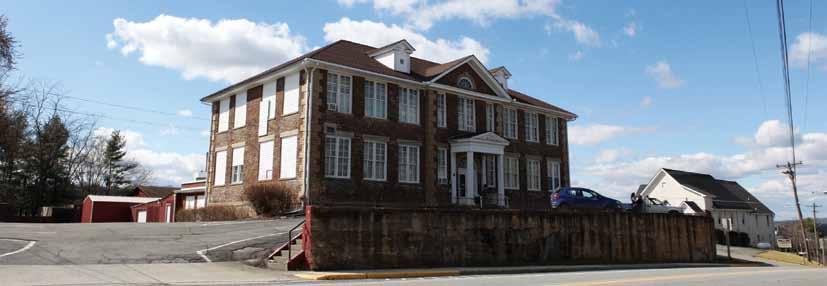
worth a look. Gone, however, is the giant, famous Button Bin. Though many no doubt have fond memories of sorting through the bin to find good deals on spare buttons, organization and inventory management have become greater priorities.
The fabrics and crafts business has changed a lot in a half century. Thirty years ago, it seemed everyone and their mother was dabbling in such arts. Around that time, Schoolhouse Fabrics had about eleven on staff to keep up. With so many distractions and modern conveniences, however, sewing, knitting, and crochet are now among the more rare and precious skills of bygone days. For some time now, they’ve operated with only the five family members on staff.
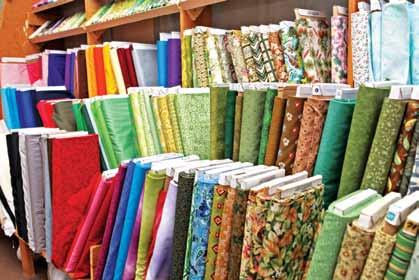
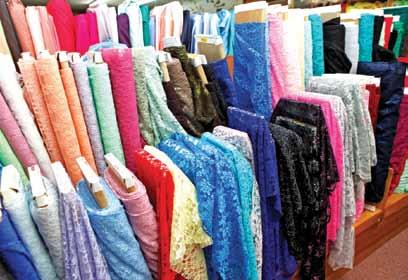
Despite their small numbers, they are all equally committed to being there for their customers, and they manage to spread themselves in such a way that it makes them seem plentiful. They are sure to give every guest the help and attention they need and to make them feel welcome.
As well as Joana and her family manage, they are striving to keep the business going strong and are looking to hire one more employee soon. It is the belief and hope of this reporter that the business will remain successful, and perhaps even grow with a resurgence of interest in homesteading and DIY within the coming generations. Schoolhouse Fabrics is open Monday through Saturday, 9:00am – 5:00pm. For more information, to ask questions, or to place special orders, please visit them on Facebook, or call (540) 745-4561.
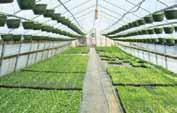







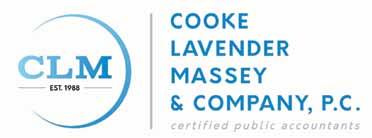


A passion for cars was instilled in Rob Favre at an early age. Some of his earliest memories include working on his dad’s race cars in the shop and getting to work at his dad’s auto parts store.
He continued his interest with an auto mechanic class in high school, and during his college years, Favre worked with used cars at a location in Blacksburg. Shortly afterward, he started working for car dealerships.
The passion he has for cars, however, is not limited to just selling and fixing. After all, cars are for driving! And since 2008, Rob Favre has been getting behind the wheel and driving…really fast! With his race team, Buffalo Mountain Motorsports, Favre has raced dirt late models regionally across Virginia, West Virginia, North Carolina, South Carolina, and Tennessee. With twenty-three total wins, Favre is also a former Wythe Raceway champion. He also received Rookie of the Year.
In addition to all the driving, Favre also continued his sales career. Eventually, he became a manager for one of the leading automotive groups in the country. Through this position, he was able to work closely with large auto dealerships all over Virginia, North Carolina, South Carolina, and West Virginia. Those long hours on the road and time away from family, however, made taking the leap to start out on his own an easy decision. Having lived in Floyd County for thirty years, he felt there was the need for a quality, affordable used car dealership.
“After over twenty-five years working for others in the automotive industry,” says Favre, “I felt it was time to step out on my own and take everything I’ve learned and put it to use here in Floyd County.”
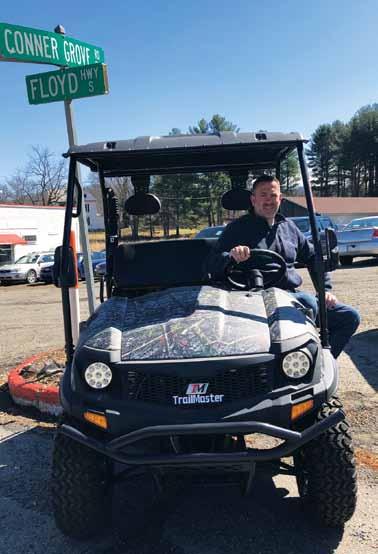
The first location that caught his eye was the B&S Automotive building at 5587 Floyd Hwy South in Willis. In earlier days, it had been a Shell station, but most recently, it had been rented to a couple doing auto repairs. Not only was the three-bay facility within just a few miles of home, Favre liked that it was situated on one of Floyd’s main roads, with high visibility.
“The amount of traffic that passes by daily is crazy! Anybody who comes to Floyd as a destination passes it,” says Favre, admitting that he, too, passed the place every day.
He approached B&S Automotive owner, Darrell Bernette, and told him that if the building were to ever become available, he wanted dibs on it.
Just last year, Favre was able to seal the deal, and Buffalo Mountain Motorsports – named after his racing team – opened the first of July, 2021.
Before that opening, however, there were some speed bumps. Over the past few years, there has been a world-wide shortage of the chips used in the electronics for newly manufactured vehicles, and this shortage has been affecting the used car market. It put a higher demand on used cars, as more customers were looking to buy used. Suddenly, a larger number of dealers were bidding on an ever-smaller supply of used cars, causing availability to diminish. This made used car prices escalate.
There was also a lot of red tape to go through for a used car license, much of which was slowed to a crawl due to Covid-19.
After realizing that the process of becoming a used car dealer was going to take longer than originally expected, Favre decided to also start selling powersport vehicles. He began offering ATV’s, dirt bikes, go karts, and sideby-sides. As it turned out, the new inventory was a big hit! That side of the business really took off, and as it grew, so did the variety of other options and services.
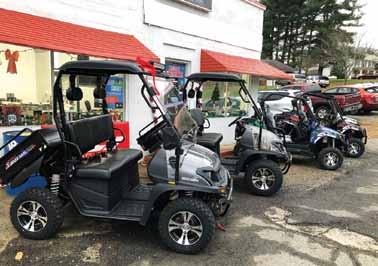
Once word got out, customers started coming from as far as Virginia Beach, Tennessee, West Virginia, North Carolina, and South Carolina! “People are surprised to hear that we’ve had customers drive up to five hours to buy from us,” says Favre. “We have worked very hard to get the inventory that others
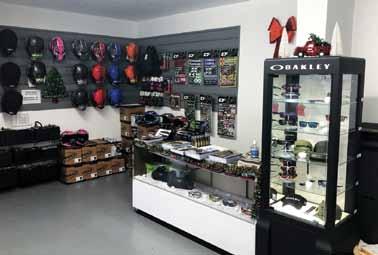
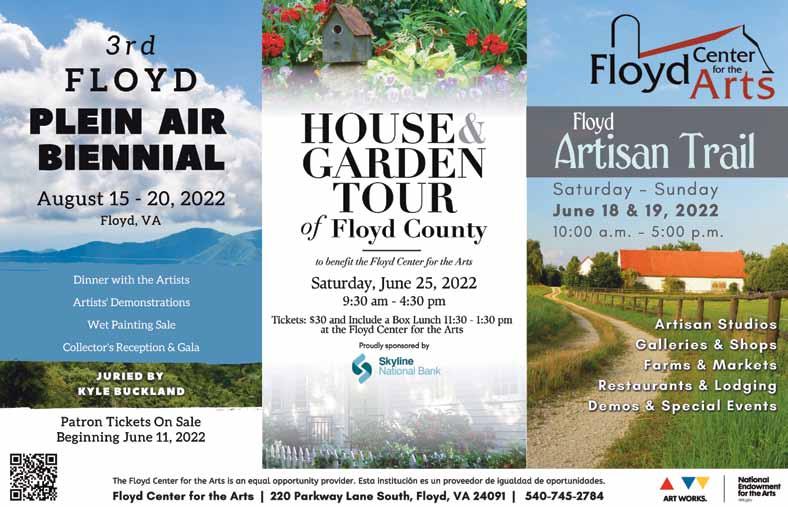



can’t, and we try our very best to be knowledgeable about the products that we sell. That really goes a long way with folks.”
And with all these visitors, Favre has found a way to give back to the community he calls home. Folks who have driven to Floyd specifically to check out Buffalo Mountain Motorsports are often seen getting gas at Willis Village Mart after leaving the lot. Some even ask where to get some good food before they leave.
“I can’t tell you how many times we’ve sent people right across the street to Jim’s Grill,” says Favre. “These folks often find their way to the town of Floyd to explore and check out other businesses in the area.”
Having a great inventory and great services, however, is just part of what it takes to be any kind of vehicle dealer. Going in, Favre knew that there would be a need for financing on both used vehicles and powersports. Being a new business, however, made it difficult for Buffalo Mountain Motorsports to acquire financing for their customers.
“Early on,” says Favre, “we were calling anyone and everyone to see if we could get funding for our customers. Most lenders didn’t even want to give us the time of day being that we were a new business.” But the immediate success of the powersports sales made short work of those difficulties! “Now we have lenders calling us weekly to try and get our business.” Now, Buffalo Mountain customers can get financing through the likes of American First Financial, Synchrony Financial, and Credit Acceptance Corporation. It has allowed them to make motorsport dreams come true for customers with no credit, not the best credit, or those with great credit.
With the financing issues resolved, it was time to focus on supply. To that end, Favre signed up with several different auctions in the area, as well as online, to find the inventory that customers are looking for.
Favre tells us that starting the new business has been challenging when it comes to remaining connected with family and taking part in the family routine. “I’m at the shop seven days a week even though we are only officially open five.”
He has also had to put racing on a back burner but hopes to be back on the track later this year, after bringing on more help.
Stepdaughter, Quintessia, is in the Air Force while son, Reid, is in high school. But twin five-year-old daughters, Izzy and Isla, are still in elementary school. With wife, Aulet, attending nursing school, it has become a real juggling act. With the shop being only three miles from their home in Willis, however, as well as just a few miles from Willis Elementary School, it has made things a bit easier.
In the spirit of cooperation, however, the entire family helps with the business as often as they can. Favre’s dad and mom often take road trips to pick up vehicles or deliver powersports. Aulet is learning to help with
administrative duties and DMV work and Reid is helping detail used vehicles. Meanwhile, Izzy and Isla keep everyone in line.
With a passion for cars, and one of the few used car dealerships in Floyd County, Buffalo Mountain Motorsports specializes in lower priced affordable vehicles ranging from $3,000 to $10,000. Customers will also find a pleasant, no-pressure sales experience at Buffalo Mountain. “We aren’t the traditional car dealership,” says Favre. “If you have to pressure someone into buying from you, it never turns out well for either party.”
Also, with growing demand for other services, Buffalo Mountain has added automotive detailing. Customers can choose a basic hand wash or full detailing, including hand waxing and shampooing. All detailing is done using quality products from Liquid Performance. These products have also been made available to purchase in store.
Not only does Buffalo Mountain Motorsports sell powersports from TAO Motors and Trailmaster, they also service and sell parts for all brands, including Honda, Kawasaki, Suzuki, Polaris and more. Upon entering the showroom, customers will not only find a variety of powersports, but also parts, including batteries and carburetors. Customers may also shop among the inventory of cleaning products, safety equipment, a full line of helmets, Oakley sunglasses, and apparel.
Looking forward, Favre plans to continue expanding in order to meet the needs of his customers. Always open to suggestions and willing to try new ventures, he plans to add small engine repair and service to the business model this spring. “We had a few customers ask if we could work on snow blowers this winter and we decided since we have the manpower and capability that we are going to start taking on small engine repair and maintenance jobs.”
“It’s been a pleasure to see so many people we’ve known for years support our business,” says Favre. “It’s also been great to meet so many great people and business owners in Floyd County. The Floyd business community, as a whole, supports each other and that’s great to see. We have been referred customers from several businesses in Floyd County and we try to do the same.”
Throughout 2022, Buffalo Mountain Motorsports will be reaching out and becoming a greater presence in Floyd and surrounding areas. One of the big goals for the year will be to venture out to local events, letting residents know everything the dealership has to offer. With business

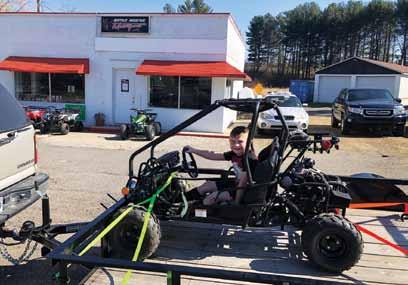

is looking forward to playing an even bigger part in the
exponentially,
community for many years.

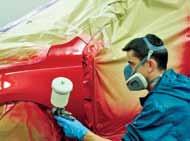
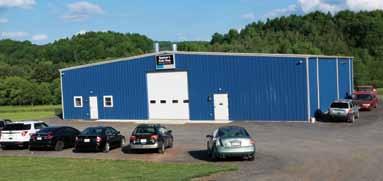

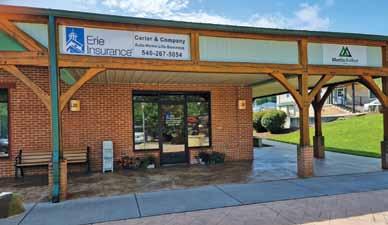

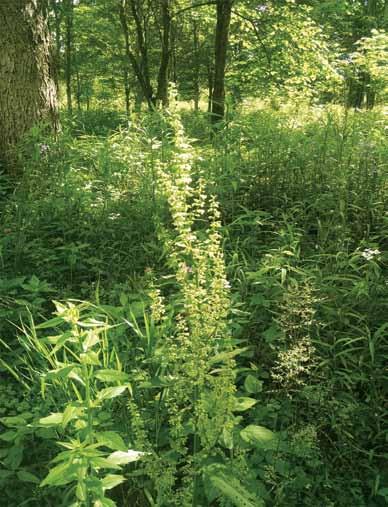
A story that starts in seventeenth-century England, then crosses paths with one of today’s top country musical artists and ends with new life breathed into a classic landmark is certainly one that calls for a big, cozy chair, a mug of everyone’s favorite hot beverage, and a bowl of popcorn!
In 1654, a man named James Tugwell immigrated from England to the Virginia Colony. There, he lived in Lancaster County before finally receiving a land patent. He then settled in Middlesex County with his wife, Mary. The two of them made a home in Middlesex and raised their family.
Fast-forward over a hundred years and the Tugwell family had since become the Tuggle family, and the descendants of James and Mary had done well for themselves. The family owned several hundred acres of land in what eventually became Patrick County. On that land was a particularly beautiful spot surrounding Rockcastle Creek. This area became known as Tuggle’s Gap, and it is still known by that name to this very day.
In the 1930’s, when plans were made for the National Park Service to build a scenic parkway through parts of the Appalachian Mountains in Virginia and North Carolina, General Washington Boyd and Ward Spangler decided to build a gas station and store to serve travelers on what would soon become the Blue Ridge Parkway
in 1938. The next generation of the Boyd family added a restaurant and motel to the property, and it came to be known as Tuggle’s Gap Restaurant and Motel. The owners moved in, to better run Tuggle’s Gap, raising their family in the apartment below the restaurant.
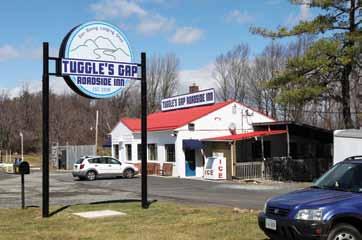
Throughout the 50’s and 60’s, Tuggle’s Gap Restaurant and Motel became a popular spot for Parkway travelers wanting to get a bite to eat and rest easy amid the stunning scenery. After nearly fifty years and several more generations running the property, the Spangler family sold it in 1985. It was then sold again in 1992 to Neil Baker, who was joined by her daughter Cheri.
Both women brought with them many years of restaurant experience, as well as Southwest flavors from Neil’s time in New Mexico. When Neil retired in the early 2000’s, Cheri took the reins, continuing in her mother’s footsteps by providing quality food and lodging at Tuggle’s Gap.
A commonly seen face, and occasional employee at Tuggle’s Gap during Cheri’s tenure, was a young Morgan Wade. Morgan’s album, “Reckless”, was named by Rolling Stone Magazine as the Best Country and Americana Album of 2021.
The same year Morgan received this honor, Cheri was ready to follow once again in her mother’s footsteps. She, too, was ready to retire. After spending some time trying to find the right buyer,

Cheri eventually ran into Nick Bieneck. As it turned out, Nick already had a history with Tuggle’s Gap, as well as Floyd itself! Having worked as a stage manager for twelve years at FloydFest, Nick and his family had often stayed at Tuggle’s Gap during visits to the music and arts festival.


When Nick found out that Tuggle’s Gap Restaurant and Motel was for sale, he convinced his recently retired father, Bjorn, to join him in taking on the task of bringing new vision and life to the iconic location. Nick has had a long career in hospitality, working both in front and back of the house. His extensive history also includes management in foodservice, hotels, and hostels in both the United States and Europe. Nick possesses a unique and diverse background that makes him the ideal candidate for running the day-today operations at Tuggle’s Gap.

Bjorn, who had already been looking for a new challenge, brings over fifty years of experience in the international trade show and event industry. Through his involvement in tourism and promotion, Bjorn is promoting Floyd, the Blue Ridge Parkway, and Tuggle’s Gap to local, national, and even international audiences. Though he lives in Fredericksburg, Bjorn also visits the property frequently to help keep things running smoothly.

The Bienecks took possession of Tuggle’s Gap in late 2021, renamed it Tuggle’s Gap Roadside Inn, and immediately started complete renovations and updates. They opened in November with a whole new menu focused on local suppliers and home-style cooking. Though they were originally open for just breakfast on weekends, Tuggle’s Gap Roadside Inn soon expanded to offer lunch and dinner throughout the 2021 holidays. Even with the expanded hours, there were still many times when guests were waiting for tables!
In early 2022, the restaurant closed again for a few months to give the father-son team time to focus on renovating the ten guest rooms. The newly upgraded rooms feature many modern-day comforts while keeping as much of the vintage motel charm as possible. With the façade of a classic roadside motel, the bright new rooms include new beds, completely renovated bathrooms, newly installed heating and air conditioning, dedicated high-speed Wi-Fi access points and ethernet ports, as well as a number of other upgrades.
Simple country cooking with fresh, local ingredients is the guiding principle behind the new menu at Tuggle’s Gap. The restaurant serves breakfast all day, as well as burgers
made with local beef raised in Floyd. There are even apples grown just a few hundred feet from the property at Wade’s Orchards. In addition to all the great new items, longtime fans will be happy to know that the restaurant menu will be keeping classic Tuggle’s Gap dishes that have been passed down from previous owners. These include the famous Tuggle’s Gap Pie, Southern Style Pinto Beans with Cornbread, and Pan-Fried Chicken. Some early customer favorites have been the handbreaded onion rings and the revamped biscuits and gravy which some locals have even dubbed “the best in the county!”
The original 1930’s section of the main building was returned to being a country store with outdoor and camping supplies, kids toys, beer, wine, vintage and hard-to-find soft drinks, snacks, and grab-n-go prepared foods ready for a picnic along the Parkway. Decorating the walls of the store, as well as the restaurant, is antique signage, original to the property, that was found during the renovations.
The Bienecks also plan to renovate and reopen the deck, adding more outdoor seating around the restaurant to offer customers a more relaxed spot to enjoy some light food and occasional live music. From the deck, guests can also take in the breathtaking scenery while sipping on a ‘red eye’; a local favorite cocktail with a base of beer and tomato juice.
Across the property from the restaurant is another food service venue that previously served as an ice cream parlor. This will be expanded to serve beer and wine, prepared foods from the restaurant, as well as classic ice cream-based treats on the large deck overlooking the mountains.


The Bienecks also plan to renovate the vintage gas pumps that greet visitors outside. They will be bringing the pumps, as well as their state-of-the-art storage tanks, back into service as one of the ever-fewer independent gas providers in the country.
The entire Bieneck family contributes to the newly renovated Tuggle’s Gap, boasting a combined century-and-more of experience in multiple sectors of the events industry. Nick’s

mother, brother, sister, and brother-in-law are all providing their unique expertise in the development of the property, using their knowledge to plan everything from weekly Bluegrass Brunches, to visiting musicians, to multi-day festivals celebrating the culture and nature of the region.
“We’ve done a lot of upgrading and restoring around here, but the primary thing we wanted to keep intact is the character of Tuggle’s Gap,” says Nick. “It is a classic America roadside joint from the early days of 20th century road trip culture.”
Tuggle’s Gap Roadside Inn has partnered with the Floyd Tourism Office and Cycle Floyd to have a custom bike rack and bike tools installed on the property for anyone to use. Tuggle’s Gap also features a newly printed map of the region with information about local sites and landmarks for visitors seeking hiking, biking, or scenic driving destinations.
“It has been a lot of work, but we are proud of our vision for Tuggle’s Gap Roadside Inn,” says Bjorn. “Going forward, continuing the legacy of this being a familyrun property for visitors and locals alike.” Tuggle’s Gap has not only long served as a rest and refuel spot for travelers along the Blueridge Parkway. It has also been a gathering place for locals celebrating unique events, having a great meal, or just enjoying a fresh-brewed cup of Tuggle’s Gap custom blended coffee while having a slice of pie and a chat with neighbors.
Tuggle’s Gap Roadside Inn is located at 3351 Parkway Lane S. in Floyd. For more information and reservations, visit tugglesgap.com or email info@tugglesgap.com. To keep up with the latest hours, menus, events, and news, follow them on social media: Facebookfacebook.com/TugglesGap or Instagram - @tugglesgap.
Tuggle’s Gap Roadside Inn • Nick Bieneck 3351 Parkway Lane Sout, Floyd, VA TugglesGap.com • info@tugglesgap.com facebook.com/TugglesGap







When the Nanfelts moved their family to Floyd County in 2020, Sharon was not expecting to build a natural playground on their small family farm. Yet, with the ongoing pandemic and the difficulty it brought for her children making friends, that’s exactly what she found herself doing. She chopped away at tough sod for weeks on end, tilled cow pasture into winding garden beds, and installed an enormous playground slide onto the hill…all within just a handful of months after arriving.
“I didn’t know I would build this business,” said Sharon, “but I did know that my children needed open spaces and to experience the magic of their own imaginations. I knew that I would create things, grow things, and build things to get them outside and to bring children to meet mine.”
Meanwhile, Earl White and Adrienne Davis are widely known in the local area for their thriving business, Big Indian Farms: a wholesale and retail organic sourdough bakery. However, the bakery is not their only passion. The Davises have seventy-two beautiful acres with a bold stream running through, featuring areas for camping, hiking, and enjoying the water. Annually, they also host a variety of people and facilitate many overnight stays and campouts. Sometimes, they cook whole meals for over 300 people at a time!
Earl is an avid musician who loves to preform and to lead traditional music workshops. The Davis’ love for community, good food, and music has truly created an enchanting and joyous atmosphere that is palpable the moment visitors step onto the property.
The beauty intertwined in these stories is the driving force behind SustainFloyd’s latest project that will be launched in the spring of 2022: the Floyd Farm Trail. Funded by a marketing grant from the Virginia Tourism Corporation, SustainFloyd is taking another step in the efforts to develop the local food economy of Floyd County; in this case, connecting consumers and farmers directly.
Travelers driving the trail will be able to access a central website containing a list of all the farms involved, along with the directions, hours, and events specific to each place. They will also be able to
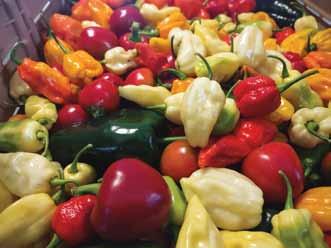
pick up digital brochures at the local Floyd Farmers Market and keep track with updates from social media. The Farm Trail is being set up in similar fashion as the already existing Floyd Artisan Trail, as well as the Crooked Road Trail, enhancing Floyd’s rich scene with an official agrotourism element. From U-pick berry patches to local AirBnB stays. From cooking courses to farm stores, on-farm events, and educational workshops — the trail will have it all.
The money from the grant will be used to market the farms and establish the trail, which will also bring more awareness and prosperity to each individual place, increasing the audiences for all.

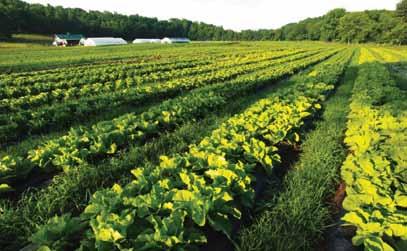
“Here at Big Indian Farm, we are hoping the Farm Trail will increase the visibility of current and future projects we are doing,” says Adrienne Davis. “In addition to the bakery, we are working on developing a series of workshops, creating lodging, and farm to table dinners. We would like to create a vibrant, beautiful place for people to come to in order to learn a new skill, relax, eat local nourishing food, and enjoy the area.”
The Farm Trail, however, will not only include established locations, as Sharon Nanfelt has found. “As a new business owner,” she says, “joining the Floyd Farm Trail during our opening year feels very lucky. The early goal for Ferney CommonGround is to attract locals and develop awareness of our pick-your-own berry farm and play gardens. With the start of the Floyd Farm Trail, we are hoping to jumpstart marketing to a broader group of tourists visiting the Blue Ridge Parkway. This development could help us stabilize more quickly during our founding year.”
Farms participating so far include Floyd EcoVillage Farm, Riverstone Organic Farm, Josephine Porter Institute, Deer Park Farm, Fields Edge Farm, I-Tal Acres, Broadened Horizons Organic Teaching Farm, Turner Family Farms, Four Bears Overlook, Skipwillow Farm, Big Indian Farm, Piemonte Provisions, and Ferney CommonGrounds. Though this is a good list to start, it will continue to grow and expand with the potential for many others to join.






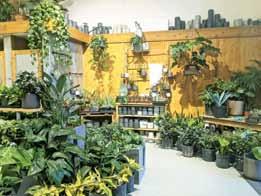
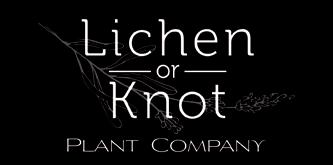
The tangible sense of wonder and hard work that these farms naturally generate on their own will be the glue that holds this project together, drawing people in from far and wide. The passing down of treasured knowledge, as well as the imprinting of beautiful memories on fellow humans, is sure to reverberate for years to come around the globe.
Farming is already such a deep part of the local Appalachian heritage. The Floyd Farm Trail will serve to bridge the gap between traditional methodology and the new flow of people and ideas that are continuously brought to the region.
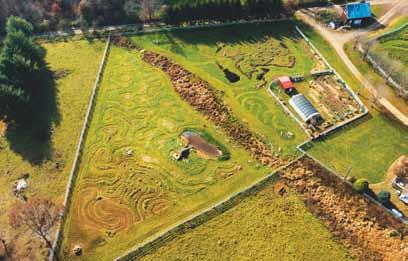
The project itself couldn’t have been possible without the involvement of the Virginia Tourism Corporation; a state government office located in Richmond, Virginia. Application opportunities for the grant opened in 2021, with hundreds of organizations applying. Former assistant Farmers Market manager, Jessica Branks, did the heavy lifting to put forth the grant application for SustainFloyd. Amazingly, the organization soon received word that SustainFloyd had been allotted the maximum amount allowed in each case, which was the sum of $20,000.



“We really think what made a key difference in our application, and ultimately what made the VTC green-light the amount of funds” says Woody Crenshaw, co-president of SustainFloyd, “was that we had so much community support backing this project. So many other farms signed up. The utilization of the Farmers Market as an anchor gave it stability as well.”
However, with the ongoing COVID epidemic and the change of management at the Market, SustainFloyd decided to kick the project off in Spring of 2022, and it has hit the ground running. Coming onto the venture with fresh eyes and ears are Kathleen Legg of the Floyd Tourism Office and Abigail Patterson, the new Farmers Market manager.






“The generous grant from the Virginia Tourism Corporation,” says Legg, “offers a unique opportunity to market Floyd County as an agrotourism destination. This will help promote the diverse array of engaging agricultural activities that Floyd currently has to offer. The Tourism Office is very excited to serve as a partner to the grant and help with promoting the Farm Trail to visitors.”
The project is expected to be fully up and running by the beginning of the Farmers Market season, which starts the first weekend in May. Information on the Floyd Farm Trail will be accessible at the Market all year round. If interested in having your farm listed on the trail or wanting to stay current on when the website will open, please contact Abigail Patterson at marketmanager@sustainfloyd.org. The Floyd Farm Trail website is in the works and will be launched in the spring of 2022, along with an official Facebook and Instagram account. The Floyd Farmers Market runs May-November, Thursdays from 3:00-7:00 and Saturdays from 9:00-1:00.


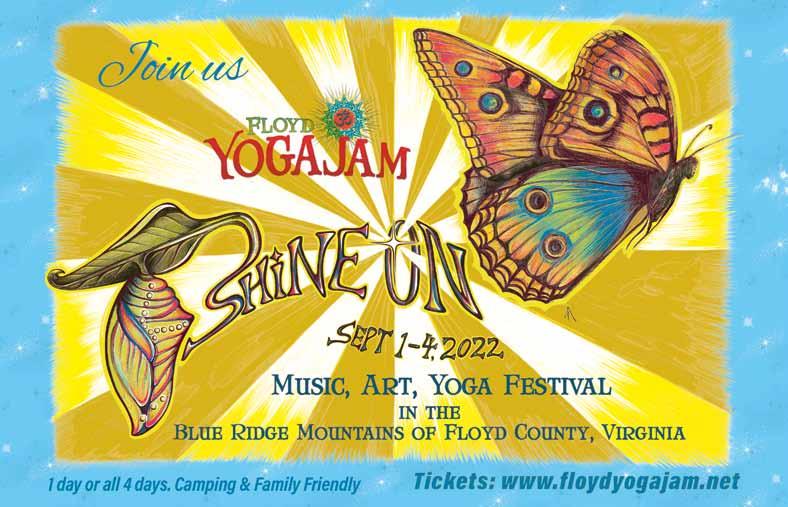
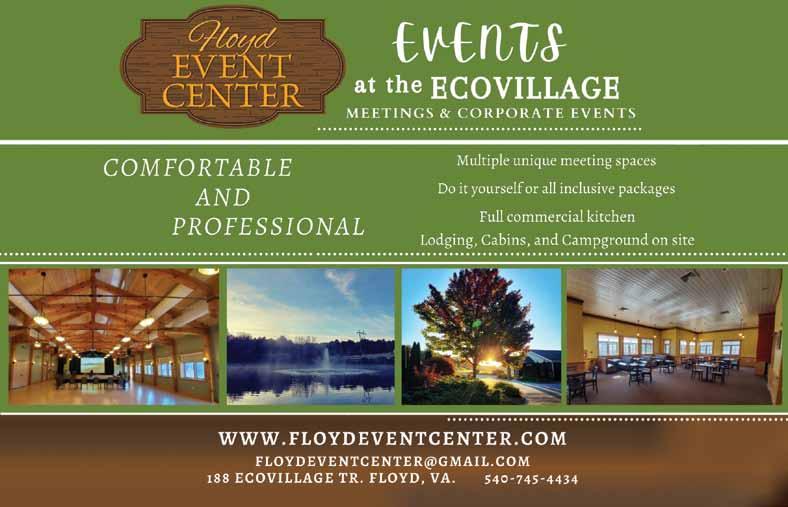
Poets from all over the state will present workshops and readings at the 2022 Little River Poetry Festival! The event begins Friday, June 3, at 1:00 pm, and will run through Sunday, June 5 at 3:00 pm. The event will take place inside the big tent in the meadow at Daniel Sowers’ ‘On the Water Outfitters’, 2053 Thunderstruck Road in Floyd. The Sowers family will host a poetic invasion and their farm will reverberate with music and laughter for this unique, inclusive experience. Visitors are encouraged to bring original poetry to share at any of the six Open Mic sessions, as well as notebooks to capture new ideas. Musical instruments welcome!
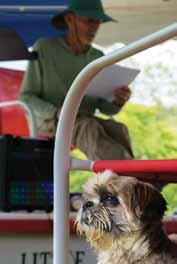
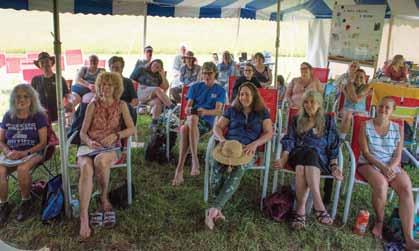
This year, Appalachian poets and much-loved teachers, Sharon Shaver Wood and Beth Simpson Huddleston, team up for an original performance of poetry and storytelling that will leave you laughing and marveling at their originality.
If they seem like sisters, it’s because they’ve known each other since birth! Born a day apart in Roanoke, their mothers were hospital roommates. As preschoolers, they attended the same Sunday School at Copper Hill Church of the Brethren. They also entered first grade together at Check Elementary, in Mrs. Garnet Reed’s classroom. Continuing together through high school, they recited poetry, created monologue book reports, and developed dramatic scenes from favorite books. Both girls graduated from Radford University to become English teachers.
Beth’s formative years were spent in Floyd County. Surrounded by a large extended family, she learned much about the history of the area. Her book of poetry, “Run, Meadow Run”, reflects her experiences growing up in Floyd. An educator for almost forty years, she completed her Master of Science in Education degree at Shenandoah University and has taught in a number of mountain school systems. Her passion for writing extends to supporting those children and adults who are expanding their writing skills. Like a good friend, Beth played the piano for Sharon’s wedding, and they still get together with a group of childhood friends known as the “Check Chicks.”
Sharon is also deeply rooted in in the history of the area. Her stories can be heard and read by searching “The Family Recollections of Mrs. Sharon Wood of Copper Hill, Floyd County.” The text and audio are available through the Appalachian Regional and Rural Studies Center at Radford University. Within the audio recordings, Sharon is interviewed about life as a German Baptist, living in Appalachia. The interview is among many projects created by English students,
‘Appalachian Folklore’, 1981-2019.
Also featured at this year’s event will be Poetry Society of Virginia noted poets, Eric Forsberg of Leesburg and Zeina Azzam of Alexandria, both reading from their books. Additionally, Nathan Richardson, Suffolk poet, and Frederick Douglass, re-enactor, will join Yorktown poets, Jill Winkowski and Brian Magill.
Festival mainstays, Don MacKellar (New Mexico), as well as the Mom-and-daughter poet-duo, Jamie Williams and Cas Horne (York, Pennsylvania), will also join poets Serena Fusek (Newport News), Edith Blake (Portsmouth), Star LaBranche (Chesapeake), Lisa Cooper (Norfolk), Alex Hudson (Suffolk), and edgy poet, Lisa Kendrick (Norfolk).
This year’s Poetry Ensemble, ‘If I Could Dream the Future’, will be a dramatic recitation featuring Thayer Cory (Williamsburg), Eric Forsberg (Leesburg), Karen Kendall (Norfolk), and Little River Poetry Festival founders, Jack Callan and Judith Stevens (Norfolk). Musical accompaniment will be provided by Jim Best of Meadows of Dan.
And finally, seasoned Floyd poets, Katherine Chantal and Colleen Redman, will be joined by Chelsea Adams of Riner on Sunday for the traditional ‘Free Floyd Day’. This event will open to all local residents as a ‘thank you’ from Little River Poetry Festival founders, Jack Callan and Judith Stevens to their adopted city of Floyd.
There will be something for everyone at this Festival! Gentle yoga, poetry readings, workshops, and excursions that include a nature walk and a kayak ride down the Little River. Visitors may also use the ‘Lawnchair Clause’ to just relax and take a nap in the meadow! Come casual. The festival folks are a relaxed bunch!
Homecooked healthy meals will be provided on-site by donation. Primitive camping will be available, but visitors may also choose to stay at any of the superb accommodations Floyd has to offer.
Cost is $45 for the entire weekend, or $15 per day. Drop-ins are welcome. Add $35 for a kayak trip down the Little River. All ages and abilities welcome.
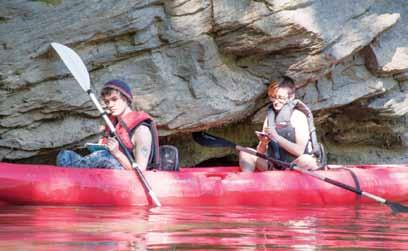
If you are a writer, want to learn more about writing from published authors, or simply enjoy listening to poems and storytelling, this Festival is for you!
Little River Poetry Fest • www.LittleRiverPoetryFest.com www.facebook.com/LittleRiverPoetryFest Jack Callan and Judith Stevens • 757-622-8721
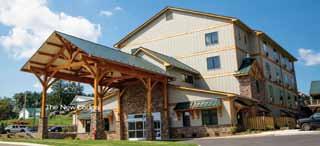









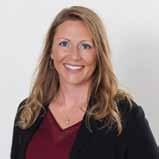








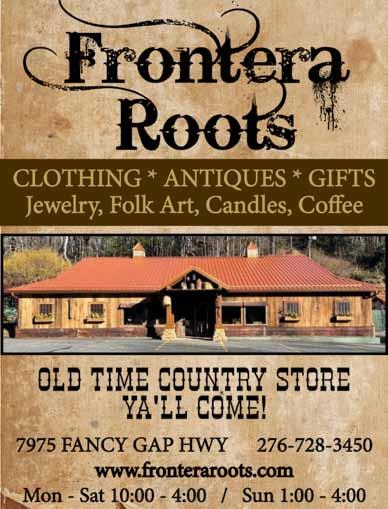








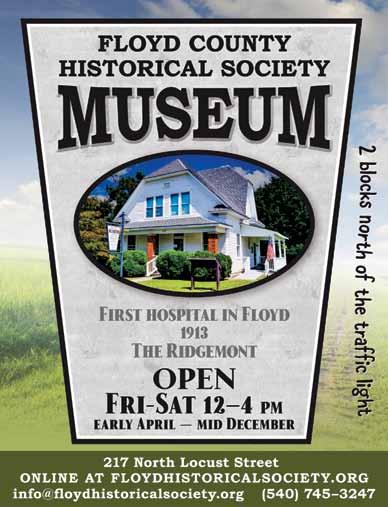

16 Hands www.16Hands.com
A New Leaf Gallery www.ANewLeafGallery.com 540-745-7367
American Pie Restaurant www.AmericanPieRestaurant.com 540-745-2501
AmRhein’s Wine Cellars www.Amrheins.com/fine-wine 540-929-4632
Anahata Education Center www.AnahataEducationCenter.com 540-745-5811
Bell Gallery and Garden www.BellGalleryAndGarden.com 540-745-4494
Bent Mountain Lodge Bed and Breakfast Inc 540-651-2500 www.BentMountainLodgeBedAndBreakfast.com
Bent Mountain Mercantile www.BentMountainMercantile.com 540-929-8046
Blake Alexander www.BlakeAlexanderDesign.com 540-750-6510
Blue Ridge Alchemy facebook.com/BlueRidgeAlchemy 540-745-4904
Blue Ridge Yurts www.BlueRidgeYurts.com 540-745-7458
Bread Basket facebook.com/BreadBasket.floydva 540-745-5382
Buffalo and More www.BuffaloAndMore.com 540-381-9764
Buffalo Hemp Company www.TheBuffaloHempCompany.com 540-745-8242
Buffalo Mountain Brewing Co www.BuffaloMountainBrewery.com 540-745-2491
Buffalo Mountain Adventures www.BuffaloMtnAdv.com 540-755-0910
Buffalo Mountain Ziplines www.BuffaloMountainZiplines.com 540-200-5234
C.W. Harman & Son www.CWHarmanAndSon.com 540-745-2252
Carter and Company Insurance jcarterinsurance@outlook.com 540-267-5054
Chestnut Springs Retreat 540-745-2345
Citizens www.Citizens.coop 800-941-0426
Cocoa Mia facebook.com/CocoaMiaChocolates 540-695-0224
Concord Corner Store facebook.com/ConcordCornerStore 276-952-3400
Country Road Realty www.CountryRoadRealtyVA.com 276-952-6582
Crockett Home Improvement www.CrockettHomeImp.com 540-382-8747
Daddy Rabbit’s Campground www.DaddyRabbitsCampground.com 540-789-4150
DeHart Tile Co www.DeHartTile.com 540-382-3271
Dogtown Roadhouse www.DogtownRoadhouse.com 540-745-6836
Dulaney’s Greenhouse www.DulaneyGreenhouse.swva.net 540-745-2994
Earth Dance Jewelry & Gems 540-230-7955
Edward Jones - David Cross www.EdwardJones.com/David-Cross 540-745-6851
Farm Credit of the Virginias www.FarmCreditOfVirginias.com 540-745-2071
Farmer’s Market / Sustain Floyd www.SustainFloyd.org 540-745-7333
Floyd Center for the Arts www.FloydArtCenter.org 540-745-2784
Floyd County Historical Society www.FloydHistoricalSociety.org 540-745-3247
Floyd Country Store www.FloydCountryStore.com 540-745-4563
Floyd County Tourism Office www.VisitFloydVA.com 540-239-8509
Floyd Event Center www.FloydEventCenter.com 540-745-4434
Floyd Family Campground www.FloydFamilyCampground.com 540-251-2250
Floyd Hemp Factory www.FloydHempFactory.com 540-789-2665
Floyd Humane Society www.FloydHumaneSociety.org 540-745-7207
Floyd Jewelry facebook.com/FloydJewelry 540-745-4653
Floyd Yoga Jam www.FloydYogaJam.com
G.J. Ingram & Son 540-745-3201
Grateful Produce 540-988-6318
Griffith Lumber Company www.GriffithLumber.net 276-692-8754
Haynes Well & Pump Service www.HaynesWell.com 540-382-8251
Heathers of Floyd 540-577-6703
Hotel Floyd www.HotelFloyd.com 540-745-6080
Jerry & Connie’s House of Collectibles facebook.com/MeadowsOfDanAntiques 276-952-1095
LCF Group www.VirginiaMountainLand.com 540-808-4984
Lichen or Knot www.LichenOrKnot.com 540-267-6556
Living Light River Studio www.LivingLightRiverStudio.com 540-745-5483
Main Street Mechanics 540-745-4224
McHale Arborscape facebook.com/ShaneMcHalesArborscape 540-810-1845
Mickey G’s Bistro www.MickeyGsBistro.com 540-745-2208
New Mountain Mercantile of Floyd facebook.com/MercantileofFloyd 540-745-4278
New River Valley Hearing www.nrvhearing.com 540-731-4327
On the Water in Floyd www.OnTheWaterInFloyd.com 540-838-1877
Omnibuild www.OmnibuildConstruction.com 540-745-2599
Pine Tavern Lodge www.ThePineTavernLodge.com 540 745 4428
Phillips Real Estate www.PhillipsRealEstateVA.com 540-745-3700
Phoenix Hardwoods www.Phoenix-Hardwoods.com 540-745-7475
Poppy’s MODpoppys.com 276-952-8370
Red Rooster Coffee www.RedRoosterCoffee.com 540-745-7338
Rorrer Well Drilling www.RorrerDrilling.com 540-745-6448
Schoolhouse Fabrics facebook.com/Schoolhouse.Fabrics 540-745-4561
SETEC www.SoilAndEnvironmentalTechnology.com 540-381-0309
Slaughters’ Supermarket 540-745-2908
Spencers Body Shop 540-745-5880
Sticks & Stones Construction 540-763-2003
StoneHaven Inn www.StoneHavenbnbfloyd.com 540-745-4018
Streamline Timberframe www.StreamlineTimberframe.com 540-230-5505
Sweet Providence - Tree Farm www.Facebook.com/SweetProvidenceFarm 540-525-8444
T & E Small Engine www.TESmallEngine.com 540-745-8383
The Maggie www.TheMaggieGallery.com 540-745-8000
The Schroeder Law Firm, PC www.Schroeder-Law.com 540-745-4435
The Woodshed 540-320-3057
Thomas & Wall Real Estate www.ThomasWallRE.com 540-745-8973
Tinbenders Inc www.TinbendersInc.com 540-334-5841
Tuggles Gap Roadside Inn www.TugglesGap.biz 540-745-3402
Troika Contemporary Crafts www.TroikaCrafts.com 540-745-8764
Under the Sun Tattoo www.UnderTheSunTattoo.com 540-745-3080
United Country Real Estate www.EdGallimore.com 540-230-9090
Upon the Earth Construction facebook.com/UponTheEarthServices 540-239-2362
Villa Appalaccia Winery & Vineyard www.VillaAppalaccia.com 540-593-3100
Wildwood Farms General Store www.WildwoodFarmsDaylilies.com 540-745-5155
Willis Village Mart 540-789-7241
Wills Ridge Supply www.WillsRidge.com 540-745-2044
YOSOURCE www.YOSOURCE.org 540-553-4378

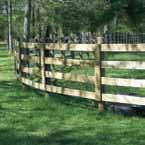





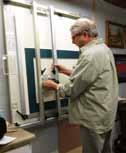


People who settled in the Floyd County area began holding religious services by 1795, and Pine Creek Primitive Baptist Church is one of the earliest churches established. It was founded in 1803 when four members of Salem Church - also known as Head of the River - were dismissed to form Pine Creek Primitive Baptist. They established the church just off the road leading to Spangler’s Mill. The initial property conveyance occurred in 1804 when Thomas Goodson conveyed five acres for the establishment of a church and graveyard at the site.
The current building is actually the second church constructed at this site. Due to age and fire, the first building was replaced around 1881, and has remained relatively unchanged since. However, the original stone foundation was replaced with cinderblock, and the roof was replaced at some point with corrugated metal.
Originally the church congregation included fifty-five members, forty-four of whom were from Salem Church. By at least 1822, the church became integrated with no fewer than five African descended members who are believed to have consisted of both free and slave people of color. Alse Wells was the first person of color to join Pine Creek Church, but was at some point joined by Lott Shelor, Squire Howard, Jane Wells, and Lettice Howard.
The principal families who founded Pine Creek were the Boothes, Howards, Grahams, Bowers, Dodds, Moores, Shortts, Coles, Dickersons, and Howerys. The church continued to hold services until around 1990, when the last member passed away, leaving the church and cemetery in the hands of Trustees.
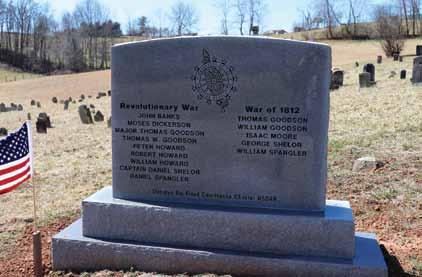
The early church was first pastored by Rev. William Howard, who served many Primitive Baptist churches in the area. His son, Peter, later took his place as preacher. An early story from the church tells of Rev. William Howard preaching during a severe drought. The prayers of the congregation were all for rain, but there had been no sign of clouds for many days. As the service ended, Rev. Howard opened an umbrella as he exited the church, and as he did so, the rain began to fall. True or not, the early history of Pine Creek Church is full of the stories of the power of prayer and its importance to the early settlers of Floyd County.
As originally intended, a graveyard was established alongside the church. Buried within the cemetery are many members of
pioneer families that settled in the area before it was even known as Floyd County. The first graves date from around 1797. Among the burials are several known Revolutionary War Veterans. The graves of Moses Dickerson, Peter Howard, Thomas Goodson, Daniel Shelor, and Daniel Spangler are known and marked. The grave of John Banks, who is known to be buried there, is lost to history, and is believed to have been covered with fill. A monument to these soldiers, erected by the Daughters of the American Revolution, stands at the cemetery to recognize their patriotic service. Also known to be buried in the cemetery are veterans of most other American Wars, including perhaps as many as five veterans of the War of 1812.
Because of its age, the cemetery has become somewhat run down and is the subject of recent preservation efforts. A group of private individuals working with the cemetery’s current ownerFloyd County Historical Preservation Trust, Inc. - has begun to raise funds for its restoration and care. The goals of the fundraising are to clear the area of debris, and to conduct a ground penetrating radar survey of the property that would locate the unmarked graves. The project would also map the identified and marked graves and would repair and restore headstones. Finally, the project seeks to fence the cemetery, and to create a maintenance fund for the perpetual care of the grounds.
The history of Pine Creek Church and Cemetery is central to the story of Floyd County’s development, as the histories of many Floyd County families can be traced to those grounds. Its preservation is necessary to tell the full story to the current and future generations of Floyd County’s pioneer families. The Floyd County Historical Society urges you to visit the church and cemetery, and to join in the Preservation Trust’s efforts to care for and maintain the Pine Creek Church and Cemetery. Donations to this effort can be made to: The Floyd County Historical Preservation Trust, Inc., c/o Michael J. Hatcher, Treasurer, P. O. Box 98, Floyd, VA 24091.
The Floyd County Historical Society 217 North Locust Street, Floyd, VA www.FloydHistoricalSociety.org • 540-745-3247 info@FloydHistoricalSociety.org




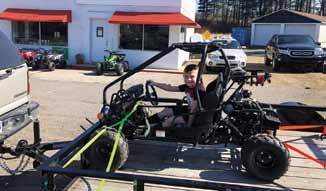
Former Chamber of Commerce leader, John McEnhill, is still somewhat amazed at how he ended up owning Buffalo Mountain Ziplines. He had announced plans to retire from his position as Executive Director in 2020 to pursue a business concept, but those plans were put on hold during the pandemic as he pivoted toward helping the Chamber and its members navigate the pandemic challenges.
He had been considering options for owning and operating a business for several years, but the pandemic also impacted his business concept, so he began pursuing other options. Eventually, McEnhill put in several purchase offers for commercial real estate in Floyd County.
“These offers helped clarify what was or wasn’t a good fit for me,” McEnhill recalls. “I had looked at the Buffalo Mountain Ziplines listing several times over several months until one day something clicked, and I asked myself, why not?”
McEnhill put an offer in to purchase the zipline business in July of 2021 and closed at the end of October. “It was definitely a challenge to keep up with my Chamber responsibilities and manage the time-consuming process of purchasing a commercial business during a red-hot real estate market,” he says. “There was a longer than usual wait for appraisals and land surveys due to the backlog caused by high demand. I was blessed to have a great agent and loan officer helping me along the way.”
Prior to closing, McEnhill spent about a month at the business
with Robert and Joanna Nickell, who started Buffalo Mountain Ziplines in 2019. “They were great mentors, they trained me to be a tour guide and provided me with the technical and safety information I needed to manage the business. I inherited a well-run business with a great reputation and a great team.”

McEnhill continues, “I also had an epiphany moment during my orientation period when I was out on the zipline course with a group of guests. It was that buying the business was absolutely right for me and the lingering doubts evaporated. I was meeting new folks from all over who came to have fun. I was outside getting great exercise and working with great people on wonderful property, and I was having a great time.”
McEnhill took ownership right about the time the zipline season would have normally ended, so he decided to extend the season as late as he could, which ended up being New Year’s Day, 2022. Luckily, there was a mild fall in 2021, but there was also an early winter. Before finishing the season, the team at Buffalo Mountain ended up doing tours on some pretty cold days, with guides and guests alike all bundled up for warmth.
McEnhill’s professional background includes retail store operations, facilities management, paralegal work, and nonprofit management. Through his Executive Director positions at both the Floyd Center for the Arts and the Chamber of Commerce, he has developed strong ties to the regional business community. These include many of the resources to
which he referred the Art Center incubator tenants and the Chamber members. His experience with creating and managing the Floyd Visitor Center in partnership with Pat Sharkey, former Floyd County Tourism Director, makes it easy for him to provide his local zipline guests, as well as his traveling guests, with helpful information.

“I was able to get into a groove running the business after the Nickells left,” says McEnhill. “Then the real winter weather finally arrived shortly after the start of the new year, and we had snow on the ground for almost six straight weeks.”
As zipline tours are not done during periods of high winds, heavy rain, heavy fog, or icy conditions, the big snow this January effectively shut down the business for several weeks.
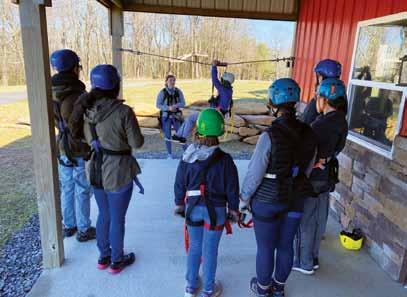
“I was glad to have a two month pause after a very hectic fall managing both the zipline business and the Chamber before my retirement at the end of 2021,” McEnhill remembers.
At the annual Chamber dinner, one of McEnhill’s last events before retiring, the Chamber Board surprised him with the 2022 Chamber Business Leader of the Year Award. They also established a scholarship in his name, with the award based on community service. McEnhill plans to continue his eighteen-year involvement with the Chamber by returning to the Board as the First Vice Chair for 2022. Former Floyd Farmers’ Market manager, Melissa Branks, has replaced McEnhill as the Chamber Director.
With the 2022 zipline season having started at the beginning of March, McEnhill is looking for additional tour guides. Guides will have a flexible work schedule, with benefits including an allotment of free tours for family and friends. Education for new guides is expected to consist of three days of training, provided by Robert and Joanna Nickell. Though they have sold Buffalo Mountain Ziplines, the Nickells remain in the zipline game. The couple owns Universal Zipline Technologies, which provides new guide training, builds zipline courses, and provides annual zipline course inspections.
“I am looking for a mix of high school and college students,” says McEnhill, “as well as some adults that can work early season and late season when students have gone back to school. We have some great guides that stayed on after I bought the business and some that are returning over
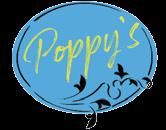
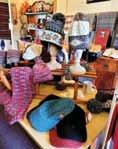

the summer from college that can help mentor new guides.”
McEnhill’s plans for the future of Buffalo Mountain Ziplines will include outfitting the residence attached to the property to host social occasions for family and friends, as well as for business gatherings. This building may also be used for short term lodging. In addition to the lodging plans for two-footed visitors, a dog zipline has been recently added to allow guests to secure their pets outside along the tree line during their visit.
Going forward, collaboration with other outdoor businesses will be a key part of McEnhill’s business plans. Among these collaborations will be the continuing of promotions such as the “Sip and Zip” partnership with local wineries.
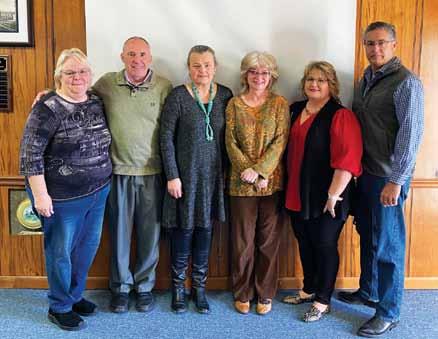
“I am excited about doing the ‘Play Hard, Rest Easy’ campaign with two new partners,” says McEnhill. “Buffalo Mountain Adventures and The Buffalo Hemp Company.”
The Buffalo Hemp Company has quickly become one of Virginia’s premier hemp retailers with locations in Floyd, Roanoke, and Blacksburg, along with a growing e-commerce presence. Buffalo Mountain Adventures provides customized guided adventures for small groups and is opening an outfitter store in Floyd.
Plans after the first year of new ownership include consideration of adding a few primitive campsites, as well as adding meeting facilities to better host business gatherings that are seeking group outdoor activities. McEnhill is also considering other recreational uses for the property, such as orienteering and geocaching, that coordinate well with its main purpose of ziplining.
Conservation of the eighty acres of land and its wildlife is a priority as well. For this, McEnhill’s partner, Dan Tallman, is taking the lead. Tallman has already installed numerous bluebird boxes, along with a wood duck box adjacent to the large pond. Tallman is also planting native Pawpaw trees, eliminating invasive, non-native vegetation. He also plans to work with one of the returning zipline guides, a forestry major at Virginia Tech, to place tree identification signage for guests while also developing additional trails on the property. A

commitment to sustainable development includes plans to add solar panels and wind turbines, as well as careful guidance for the construction of additional facilities on the property.

Managing this new business is something that McEnhill feels very comfortable with. “The Nickell family and the awesome team of tour guides earned top, five-star reviews from Google and other rating websites,” he says, “as well as a ‘2021 Travelers Choice’ award from Tripadvisor. My challenge is to maintain this great reputation while carefully adding more to the mix.”
McEnhill goes on to say, “I see this stage of my life, in my 60’s, as benefitting from all my skills, experience, and the connections that I have gained thus far. I love having my own business!”
Buffalo Mountain Ziplines provides family-friendly zipline tours to groups of up to ten at a time. Tour guests can be as young as three years of age, with the oldest participant thus far being the ninety-one-year-young, Floyd resident, Kay Clemens!
The zipline course has eight ziplines with the longest stretching well over 2,000 feet, taking about ninety minutes to complete with a full group. Safety is the most important priority, which is stressed during the guest orientation. It is also implemented with redundant measures, such as making sure guests are clipped to a cable at all times during the zipline tours, except when on the ground. Each tour has a sending guide and a receiving guide who ensure each guest goes out on the line safely and reaches the end of each line safely. The training for guides covers contingencies for weather, as well as riding in tandem with guests who need assistance, such as young children. Guides are also trained to help nervous guests become comfortable with ziplining. The ziplines are inspected daily before any tours begin.
Buffalo Mountain Ziplines is happy to host large groups of thirty or more and has already had the pleasure of hosting scout troops, international students from Virginia Tech, and corporate team activities. In 2021 alone, almost 1,100 group bookings were accommodated. Prior planning is required for these groups so that extra guides can be called in. The guests of





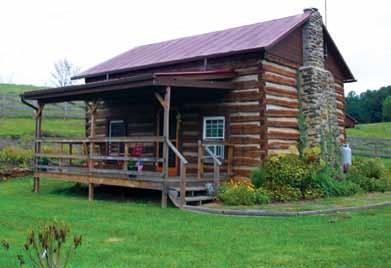

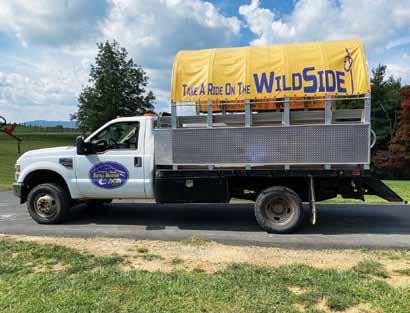
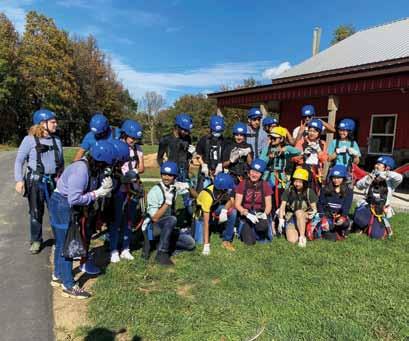
located atop the magnificent Blue ridge Plateau in southwestern Virginia, Floyd is a haven of natural beauty, where the people are renowned for their hospitality. Floyd has a vibrant culture of music, arts, local foods and wines, and outdoor recreation. With nearly forty miles of the Blue ridge Parkway running through it, Floyd is a wonderful place to visit during the spring and summer months. For more information about below and other events, go to VisitFloydVA.com or call Visitor Center at 540-745-4407.
April 30 • Po’ ramblin’ Boys live @ Floyd Country store www.FloydCountrystore.com
April 30th (May 1st Rain Date) • Raise the Barre Dance Recital www.FloydFamilyCampground.com
April 30 & May 1 • 16 Hands Spring Studio Tour www.16Hands.com
May 1 • Mayfaire • www.FloydArtCenter.org/mayfaire
May 14 • FCHS Program: Tpm Perry ~ “Dr. John Stuart, William A. Stuart, and Jeb Stuart” 10:30-12 at the Floyd Center for the Arts
May 21 •Ray Wylie Hubbard - Performing Live Historic Epperly Mill • www.EpperlyMill.com
June 3-5 • Little River Poetry Festival www.littleriverPoetryFest.com
June 5 • Tim O’Brien & Jan Fabricius Live Floyd Country Store • www.FloydCountryStore.com
June 18 • FCHS Program: Charlie Thompson ~ author of “Rock Castle Home”. 10:30am – 12:00pm at the Floyd-Montgomery library Community room.
June 18-19 • Floyd Artisan Trail Tour www.FloydArtCenter.org/artisan-trail
June 25 • House and Garden Tour • Floyd Events Center www.FloydArtCenter.org/house-garden-tour
July 9 • Replenish Festival • Burnett Farm www.replenishFest.com
July 27-31 • Floyd Fest • www.FloydFest.com
August 14-20 • 3rd Annual Plein Air Biennial www.FloydArtCenter.org/Plein-Air
September 10th • Floyd County Fair www.FloydFamilyCampground.com
September 1-4 • Floyd Yoga Jam • www.FloydYogaJam.net
September 16th and 17th • VW Buses at FFC www.FloydFamilyCampground.com
September 17 • FCHS Program: “Preserving Floyd’s Historic Records” 10:30am – 12:00pm at Floyd Center for the Arts
Check with venues for 2022 updates. Sampling: Small Town Summers concerts: free on Thursdays - every other week in the Warren G. lineberry Park.
Floyd Country Store: Honky Tonk Thursdays, Friday Night Jamboree, saturday afternoon American Afternoon music, sunday afternoon Music Jams, oldtime and Bluegrass. Watch for saturday and other night special concerts and dances.
Wildwood Farm General Store: an affiliate site of Crooked road, has free bluegrass music every saturday night throughout the year, sunday music Jams every first an third sunday afternoons, and monthly Cruise-Ins.
Dogtown Roadhouse: features music on weekends Music in the Mountain concert series: Thursday evening from 6-8 pm at the Hotel Floyd (May – October).
Buffalo Mountain Brewery: hosts free music many nights Thursday through saturday and sunday afternoon.
Floyd County Historical Society Museum: Open April 8 – mid-December. Fridays and Saturdays, Noon – 4pm.
Hotel Floyd - Music in the Mountains 2022: All shows are 6:00 – 8:00 pm and admission is FREE!
May 5: Seph Custer
May 12: Henry & Grace
May 19: Chico & Willie
May 26: Zarain Peace
June 2: Palmyra the Band
June 16: members of Jimothy
June 30: Brad Collier
July 14: Stella Trudel Cocobolo
August 11: Kat Mills
August 25: Cosmic Porch Pickers
September 8: Old Pros
September 15: members of Jimothy
September 22: Alan Graf & friends
September 29: Sauerkraut Band
spring and summer are perfect times to check out Floyd’s Floyd County Bike Guide /Map in print and on-line. Available at the Floyd Visitor Center and on VisitFloydVA.com.
NoTE: The above events are scheduled as of Floyd Magazine printing. We suggest that you check with the event organizers and visit our VisitFloydVA.com site and calendar for continual updates.
More information is available online at www.VisitFloydVA.com. Or, you can visit or contact our Floyd Visitor Center, open and staffed seven days week by calling 540-745-4407 or emailing info@visitfloydva.com.




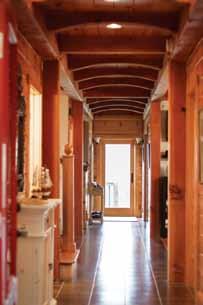



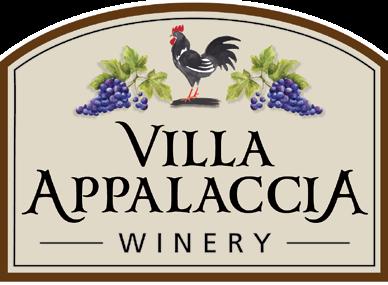

Located at 880 Little Valley Road in Carroll County, within Meadows of Dan, is an historic treasure that is getting a second chance to shine.
It was during the early 1900’s when Carroll County’s schoolboard recognized the need for additional schoolhouses to serve the growing community. The project eventually saw the construction of several schools, built on carefully selected sites, so children would not have to walk more than five miles from their homes along the dirt roads and animal trails. One of these sites, located at milepost 185 on the Blue Ridge Parkway, became known as the Little Valley Schoolhouse.

Construction on the schoolhouse began in 1929 when the Jessup family donated the land to the School Board of Carroll County. In turn, Carroll County provided funds to build the schoolhouse. Local residents provided the needed labor and a nearby sawmill provided the building materials, most of which were sourced from local oak and chestnut trees. It was a genuine community effort, meant to provide opportunities for the children of the families living there.
The Little Valley Schoolhouse originated as a Settlement School, which was a community establishment born from the English/American Settlement movement. The movement, which began in the 1880s and peaked around the 1920s, sought to bring the rich and the poor of society together in both physical proximity and social interconnectedness.
Originally envisioned for urban areas, it was Susan Chester, a graduate of Vassar College, who wanted to apply the Settlement idea to the more rural communities of Appalachia. She considered the people of rural Appalachia to be “the purest Americans to be found”. Though other types of community centers were created as part of this movement, schools also became part of the effort.
The story of its inspiration, however, is not the only historic credential that can be claimed by the Little Valley Schoolhouse. Even the architectural design of the building has historic significance. The layout and all its dimensions were originally taken from a book called “Community School Plans”, published in 1924 by the Rosenwald Foundation, which had strong philanthropic ties to the Settlement movement. Director S.L.
Smith drew up all the designs, providing separate blueprints for buildings that faced east-west and buildings that faced northsouth. This was to make best use of natural light. Plans were also included for schools of different sizes. “Community School Plans”, however, was not the first publication of its kind. The Tuskegee Institute had published a pamphlet of school designs just nine years earlier.
The Tuskegee Institute, led by Booker T. Washington, had originally published the pamphlet in 1915, featuring designs created by Professors R.R. Taylor, Director of the Department of Mechanical Industries, and W.A. Hazel, of the Division of Architecture. The Tuskegee pamphlet was published for the purpose of having a literal blueprint for establishing schools for black children in the rural South.
In 1920, the two organizations joined hands and moved forward under the Rosenwald Foundation, combining not only their forces, but also their missions. At the encouragement of Booker T. Washington, Rosenwald setup a foundation for seed money to promote the collaboration between black and white children. This fund was used primarily by the people of the Blue Ridge Mountains, even in the poor, rural communities that didn’t have any black students.
In the end, the Little Valley Schoolhouse was a direct result of the partnership between African-American leader, educator, and philanthropist Booker T. Washington, and philanthropist Julius Rosenwald, co-owner and president of Sears, Roebuck and Company.
The Little Valley Schoolhouse opened its doors in 1930 for grades One through Six. It consisted of two classrooms and an outhouse located at the rear of the property. A small spring fed a stream that ran alongside the building where children would dip their pails for water and there were two wood potbelly stoves to provide the heat during the winter months. There was no electricity. Only natural lighting was available.
Little Valley Schoolhouse was also host to one of the most highly respected instructors in Southern Virginia. Having received his degree and license to teach at age 17, John Duncan taught for fifty-four consecutive years in the Carroll County school district.





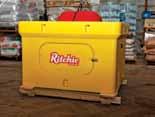
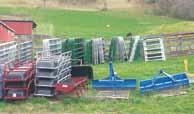
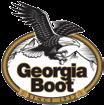
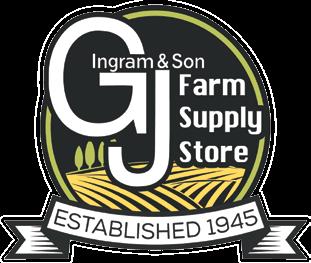
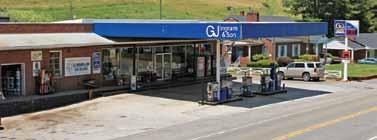
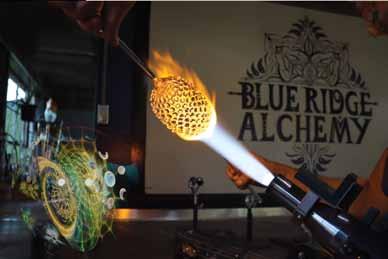
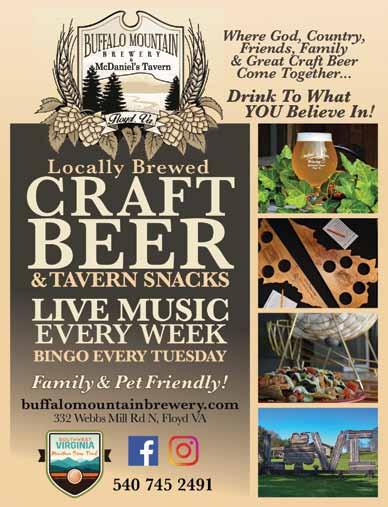
All but fifteen of those years were spent teaching at the Pine Knot and Little Valley schools, where the black board he used was three planks nailed together and painted black.
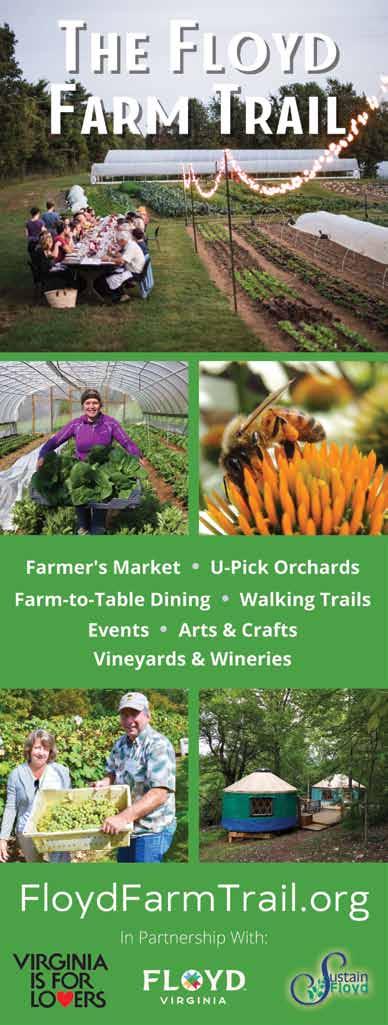

Mr. Duncan was considered a remarkable person in all aspects of his life from teaching to religion, to farming. He was well regarded in the community for always being wellgroomed and gracious; often riding on horseback from his farm in Laurel Fork to Little Valley. The history of John Duncan remains prominent in local history, as well as in the minds of those few students still surviving today.
The schoolhouse remained in operation until 1953 when the property was sold back to Johnnie S. Jessup and Leon Jessup for the sum of $315. Eventually, however, it was repossessed by the bank and remained vacant for many years.
Throughout its history, the schoolhouse roof was maintained in good condition. Also, the storage of hay inside the classrooms kept the interior dry. Despite these measures, however, the building succumbed to the forces of time and became dilapidated. A buyer could not be found due to its condition. In 2018, however, fortunes changed for the historic building. Michael Lucas, of Meadows of Dan, purchased the Little Valley Schoolhouse to restore the property and preserve it as a unique piece of history.
During the restoration period, Mr. Lucas, former students, and members of the community visited the schoolhouse to provide classroom photographs and stories of the past. Many historical facts were also derived from news articles published over the years in the Carroll County News. These stories have been archived electronically and are available online.
In 2002, the National Trust for Historic Preservation identified Rosenwald Schools near the very top of the most endangered and historical properties in this country’s history. In 2015 the National Trust classified the Rosenwald schools as a National Treasure. Less than ten percent of these schools still remain. Many Rosenwald schools have been either destroyed, left to decay beyond recognition, or were burned.
The state of Virginia has recently designated the Little Valley Schoolhouse as a historical structure, and the application is in process to make the schoolhouse a National Landmark.
For more information about the schoolhouse, its restoration, or to schedule a tour, contact Mr. Lucas by emailing noisecontrolengineer@gmail.com.
Little Valley Schoolhouse • Michael Lucas noisecontrolengineer@gmail.com


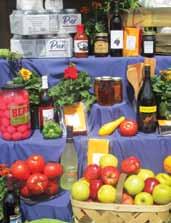



On March first of 2022, the quietness of the predawn hours was interrupted by the sound of a tiny bleat. A wooly brown dairy sheep named Siren had given birth to an adorable ram lamb. The precious baby was black with a white head and white socks, pink nose, and floppy black ears. He was also the first of nine lambs to be born at Floyd EcoVillage.
Large fields, bright skies, and friendly visitors are but a few of the experiences these tiny floofs can look forward to during their time on the seventy-five-acre property of the EcoVillage. There, they will be in the company of sixteen other sheep, two rams and fourteen ewes, as well as two nervous but attractive cows. This happy collection will be kept and cared for in the paddock located between the earth-bermed lodge and the pond, overlooked by the Event Center. Guests are encouraged to visit the animals while walking the trails but are not allowed to enter the pens without a staff member.
The lambs, however, are only the first of many new things happening this year. The changes to the EcoVillage Farm come along with new farmers, Christine Mann and Corey Hamza. Christine and Corey lived and worked in California as ecologists for many years before becoming farmers. They were farming in Oregon when life, luck, and a little bit of magic connected them with a family in Franklin County. In spring of 2020, they started Rivenwood Gardens and began farming on that family’s farm.
Although they enjoyed their time on the family farm, they continued to long for a community. For the two of them, community included an organic farm where the farmers
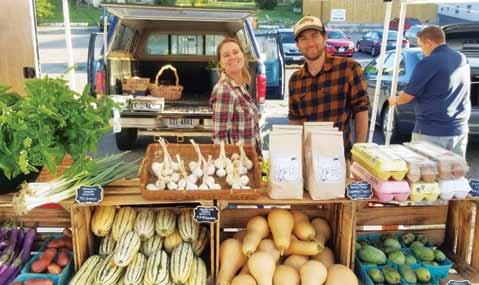
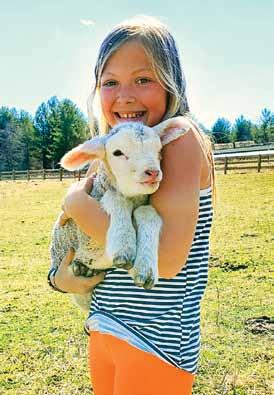
coexisted with nature and had the ability to regenerate the land. The Floyd EcoVillage turned out to be the community they had so long been looking for.
For anyone who has not yet visited the Floyd EcoVillage, it is located at 188 Eco Village Trail, just two miles east from the center of Floyd. The property is nestled back from the road and is a hidden gem that includes several energy efficient occupied homes, a working market garden, and fenced areas with sheep, chickens, and pigs. There is also a short hiking path with a “LOVE” sign for pictures.
Additionally, the EcoVillage is home to the Floyd Event Center. This beautiful timber-framed Community Center includes a commercial kitchen, state-of-the-art sound system, and a baby grand piano. It is available for rent to groups wishing to facilitate weddings, retreats, concerts, meetings, and family reunions. Maggie Hessinger is the onsite Event Coordinator, available to assist with planning and day-of coordination. There is a large patio and a gazebo over the pond for ceremonies, or just for feeding the fish! There are also lodging facilities on site, including a seven-unit earth-bermed lodge, wilderness cabins, and a small campground with a bathhouse.
Over the course of the last five years, the Farm Store has become a central part of the EcoVillage. This year, the store is being expanded, and is now open 7:00am to 7:00pm, seven days per week! Visitors have long enjoyed the local bounty the EcoVillage Farm has provided, and they may continue enjoying even more of the organic and certified naturally grown items at the store! In addition to all the great items inside, there is also a
medicinal herb garden next to the Farm Store which is open for visitors. It’s a great place to picnic for lunch, or just to sit and enjoy the pollinators.
Christine and Corey hope to expand the gardens with perennials, more culinary and medicinal herbs, and trees to help the honeybees on site. They also hope to expand the orchard. Guests may find extended flower gardens around the property, as well as wandering sheep that are rotated to help cultivate the land.
Visitors are encouraged to bring their cameras, as there will be plenty of new photo opportunities to augment the beautiful scenery that already exist along the trails and throughout the property.

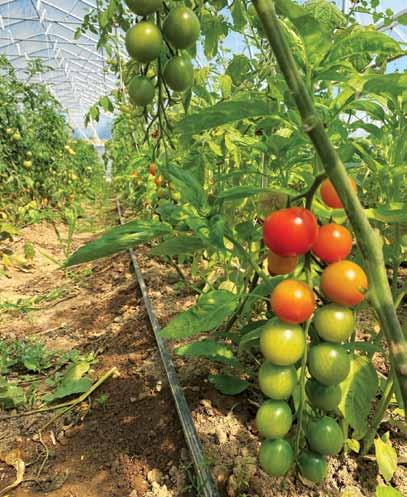
New for the summer of 2022 will be “Sunday on the Farm”. Two Sundays per month, farmers and friends will offer and lead activities for visitors. Experiences can range from salsa and herbal tea mix making, to feeding animals and building fairy houses in the woods. Plans are also in the works to install a windmill and an electric car charging station this fall.
Many more changes coming to the Floyd EcoVillage will be revealed in the months to come. To stay informed and to stay abreast of community engagement activities, follow on Facebook at facebook.com/floydecovillagefarm or facebook.com/floydeventcenter. Folks can also visit online at VisitFloyd.com for activities, dates, and times.
For more information about the property, setting up tours, planning events or to book a night onsite, contact floydeventcenter@gmail.com or call 540-745-4434.
Floyd Event Center • www. facebook.com/floydeventcenter

540-745-4434



Kelly Phillips has been interested in photography since her eighth birthday, when her parents gifted her a Kodak 110 cartridge camera. Like a flash, Kelly was snapping and shooting everything in sight. Anything that caught her eye, or her interest, ended up on film. She often wonders if her parents ever regretted having to develop so much film! But by the end of that first summer, she had photographed friends, flowers, leaves, interesting moss, bark on the trees, and views from her treehouse. “I photographed everything I saw,” says Kelly. “Capturing all the little details of my yard.”
During her high school years, however, photography had to take a back seat to the many after-school activities that kept her busy. She would have loved for her high school to have a photography course, or even a club. It wouldn’t be until after graduation, however, that Kelly was able to dive back into the fascinating art of capturing a moment, an expression, a perspective, or even a detail, then letting the whole world see it through her eyes.
After school, Kelly upgraded to 35mm film cameras and started travelling around the country, attending photography workshops taught by some of the nation’s best. Along this journey, Kelly was not only able to sit offshore at the beach in North Carolina, taking pictures of the wild horses, but she also got to attend a very exciting, fourteenday intensive seminar at Yellowstone Park!
Though she loves photographing a wide variety of subjects, she found a special place in her heart for doing portraits. The first time she set up to take some initial portraits for her portfolio, she noticed how nervous and vulnerable people can feel in front of the camera. “To be honest,” she admits, “I was nervous too!” Luckily, however, she was working with someone who understood and worked with her through trial and error.
“It’s easy to see when you’re doing the right thing,” she says. After
checking the image on the camera after every couple of shots and tweaking what was happening in front of the camera, Kelly quickly learned how to gently encourage her subjects and help them to relax. This became a rare and warm talent, especially when photographing people who are self-conscious about their appearance. There is so much about portraiture, however, that can bring out the most beautiful best in even the shyest subject. Angle, composition, pose, and even lighting are all part of the photographer’s canvas.
Kelly recalls how she felt when one of her subjects saw the image on the camera and began to cry, saying, “is this really me”?
Helping clients overcome camera shyness takes talent, and creating the right mindset is all part of the formula for success. Kelly works with her clients prior to the session, discussing goals, wardrobe choices, and even a playlist for the session. “We talk through what they want to communicate with the photographs,” says Kelly, “and then we go to work. I like when I can help clients look at different poses. I usually demonstrate the pose first and let the client mirror how I’m positioned till they are comfortable, and the pose looks amazing.”
So many rewarding interactions with truly happy and grateful people solidified Kelly’s desire to pursue portrait photography as more than just a hobby or side gig. By this time, she had upgraded again to digital, shooting with a Canon 2D Mark IV.
It was 2011 when Kelly Phillips Photography was officially established, but at this time, Kelly was still dabbling. She recognized that stepping into photography full-time was going to be farther in the future. Most of her work during this period was on-location portrait sessions.
She also began entering her work into contests, winning awards and recognition for portraits selected as Professional Standard by reputable judges in the industry. She has won several landscape contests, and in

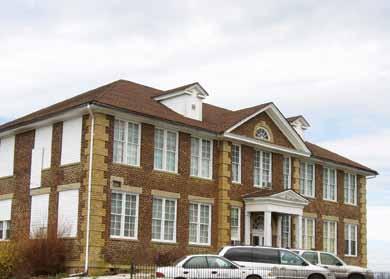






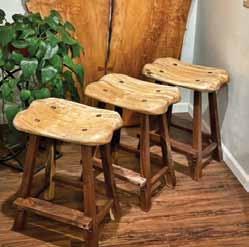
March of this year, she won no fewer than four Bronze awards for her portraiture from Portrait Masters.
By 2020, however, she was finally ready to take that leap of faith and go full time. Fortunately, her husband, delightfully also named Kelley, is amazing with tools and construction solutions. In just a couple weeks, he was able to convert an available room in their Soapstone Ridge Road home in Floyd into a working photography studio.
The studio, however, is not the only part of the Phillips’ home that gets used for photography. The friendly animals and the beauty of the surroundings are also useful. This is particularly true when young clients come for fun candid photos that utilize the property’s numerous, charming, woodsy paths.
Visitors and clients alike are frequently greeted by a variety of beloved family pets. The wagging tails and curious chickens often elicit a smile when people arrive. Her on-site menagerie can sometimes even play a part in the process of bringing out the best from her subjects.
Kelly provides numerous wardrobe and accessory options and has multiple colors of backdrops to match even the most discriminating palette. She also partners with local salon owners, such as Salon 610 in Check, to provide professional hair and makeup services the day of the session. Many clients have stated that this is an amazing opportunity to do something wonderful for themselves and have often been known to schedule plans with friends or loved ones after the session.
Kelly uses all aspects of a photography session to craft a style for her clients. “In many ways, it’s about mindset,” she says. “If I can help show my client how amazing they look by using different poses, lighting, angles, and wardrobe options, it usually becomes a huge confidence booster. I also show them previews of their images, either on my computer screen or the back of the camera as we go.”
This process, which typically takes up to four hours, has worked time and again, as Kelly aims to capture and present personal style. This can translate to a wide range of audiences and uses. For example, corporate headshots have evolved over the past decade. While the standard studio presentation still exists, many people seek a product that reflects their personal brand. The range of expressions and presentations is endless.
“Some people want to look confident, strong, or stoic. Others strive for an open, friendly vibe. It’s entirely up to them.”
The ultimate objective is that when Kelly’s clients leave the session with their excellent images, they also leave having enjoyed the process.
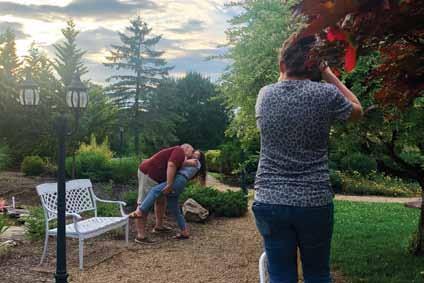

They step out with a greater sense of confidence or, at the very least, they move forward without the dread of future moments when a camera lens might turn their way.
Though Kelly loves her home studio and the opportunities it creates for great photographer/subject teamwork, she is also reaching out and spreading her photography around the community. “I’m now partnering with several local businesses,” she explains, “on everything from corporate headshots to preschool photos.” This means that Kelly can be anywhere in the New River Valley, bringing her distinctive eye and coaching to your doorstep.
One of Kelly’s favorite local business collaborations happens around holidays. Every Christmas, Kelly Phillips Photography partners with Sweet Providence Farm, where families, couples, friend groups, and others enjoy sitting for holiday photographs. Sitters often choose the setting of a much beloved, antique truck prop, but Kelly is flexible to needs. Her sessions for the tree farm typically sell out as early as September, so if you want to capture some perfect memories this year, be sure to keep an eye out early!
Looking ahead, Kelly will be seeking opportunities to do more corporate projects, especially with Floyd small businesses. She loves her community and hopes to foster business success within it. “I’m a small business in Floyd,” she says, “and I want to work with my partner businesses in the community. Floyd is a special place and I know that by capturing the people who are bringing their energy and spirit to this town. I will not only support their work, but also support the community at large.”
They say a picture is worth a thousand words. As an experienced and passionate photographer, Kelly Connoley-Phillips can probably find a thousand ways to capture your story. But the point to focus on is that Kelly will utilize expression, versatility, and professionalism, all while working with you to capture the best possible images. At Kelly Phillips Photography, customers may need photos for business portrait. They might even be corporate and product images. They may even want weddings photos, senior portraits, or pictures for any life event you can imagine. In the end, however, they are your moments, and your magic, captured for all time.
Kelly Phillips Photography • 540-320-9570
KellyPhillipsPhotography@outlook.com
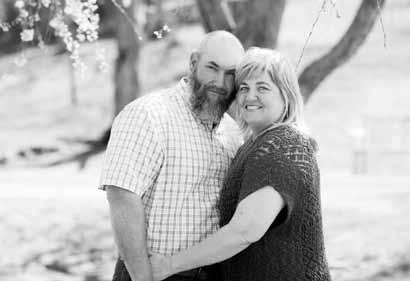
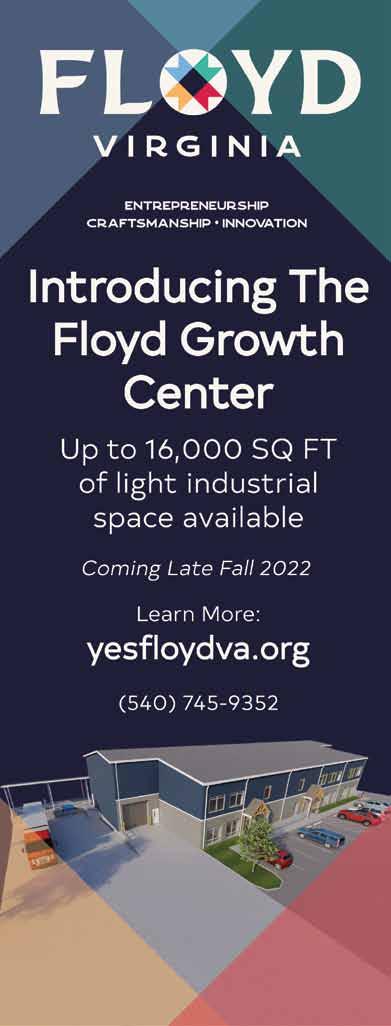
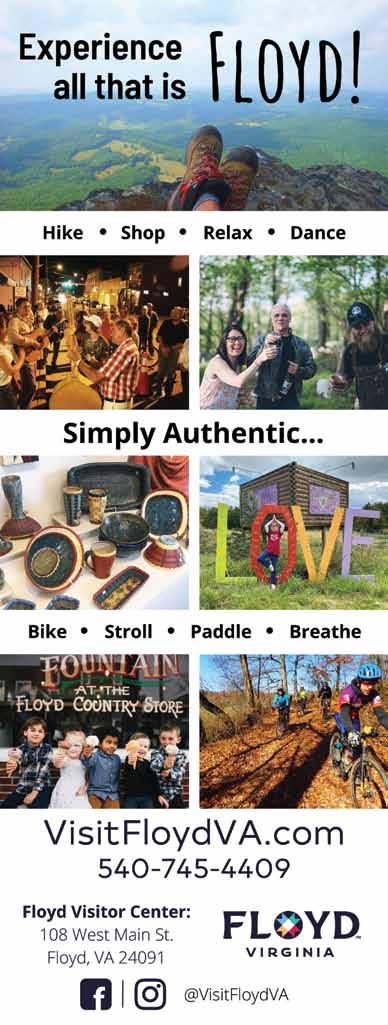
New members and new fall tour dates are on the agenda for 16 Hands in 2022! Following these past months of Covid-related limitations, the members of 16 Hands are happy to announce that they are resuming face-to-face studio tours, welcoming friends and new customers to their studios and galleries twice a year.
The 16 Hands Studio Tour started over twenty years ago, offering visitors a unique look into the lives of the artists, as well as the opportunity to view and purchase new works from nationally known talents.
In 2022, the Spring Studio Tour will be held April 30 and May 1. The Spring tour will also be introducing two new members to 16 Hands: Abby Reczek and Ron Sutterer. Abby and Ron have been guest artists in the past, so they are no strangers to the Studio Tour.
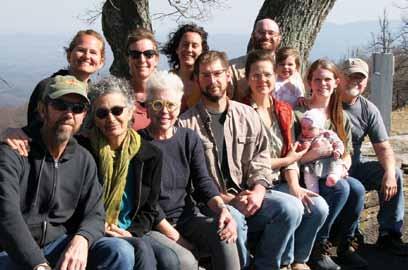
Abby has been living and working in Floyd since moving from her home state of Pennsylvania in 2013. There, she graduated from Tyler School of Art in Philadelphia. After graduation, Abby did a year-long residency at the Cub Creek Foundation in Appomattox, Virginia. It was during this residency that she learned about the little mountain town of Floyd, as well as an apprenticeship offered there by Silvie Granatelli.
After completing a two-year apprenticeship with Silvie, Abby stayed on in Floyd to continue her life in a community rich with the culture of craft. Abby is also coowner of Troika Gallery, located in downtown Floyd.
Ron’s interest in pottery can be traced back to his graduate school days in North Carolina. He developed an appreciation for form, as well as the craft of production, while collecting pottery and visiting multiple potteries throughout central North Carolina.

Ron began taking pottery courses while teaching Psychology in Syracuse, New York. When Ron and his wife relocated to Floyd, he set up a studio that allows him to create pretty much anything he can imagine. Ron is drawn to two different firing methods. One utilizes ash glazes in a gas reduction kiln. The other uses crystalline glazes in an electric kiln. Appreciating the beauty of both approaches, Ron continues to learn from the challenges unique to each, and he continues to explore the possibilities. Check out new work from both Abby and Ron, as well as their new locations, along with the new works of all the members of 16 Hands this spring.
This spring’s tour will also feature three visiting artists. First, Silvie Granatelli will be hosting Marc Maiorana. Having learned blacksmithing from his father, Marc earned a Bachelor of Fine Arts degree in Metalsmithing from Southern Illinois University at Carbondale, and is also the recipient of a Virginia Museum of Fine Arts Professional Fellowship. His work has been featured in American Craft, Metalsmith, Food and Wine, and the New York Times.
Next, Sarah McCarthy will be hosting member Donna Polseno as her guest artist. Donna is one of the founding members of 16 Hands, as well as the creator and director of the annual “Women Working with Clay” symposium.

And finally, Josh Manning and Hona Knudsen will have guest artist, Aaron Anslow. Aaron owns and operates Earthsmith Studio, located in Bethany, West Virginia. Aaron’s work has been shown internationally and he has taught in an academic setting for over a decade. Aaron is currently teaching in the Department of Media and Visual Arts at West Liberty University, West Virginia.
Fall of 2021 was the final tour for members Josh Copus and Benjie Osborne. However, these two incredibly talented and much loved members will return as guest artists in future tours. Both are still working in the arts and crafts field.
As for the Fall Tour for 16 Hands, the dates have been changed to October 22nd and 23rd. Moving the Studio Tour to an earlier date in October will not only open up the experience for those who have not been able to attend in the past, it will also allow tour visitors to see Floyd County’s landscape during one of the most beautiful times of the year. Attending the 16 Hands artist studios under the full color of fall foliage will not disappoint.
For more information on tour dates, members, and studio maps, visit online at 16hands.com. The members of 16 Hands look forward to welcoming you to their studios this April 30th and May 1st where you will find the perfect birdhouse, planter, or vase to celebrate spring.
16 Hands • 16Hands.com • www.facebook.com/16HandsTour/






While sitting in her car outside the front of Roberson Mill with the warm sun pouring through the windows, Regina Roberson Cox muses about the many childhood days she spent inside. Visions of those younger, carefree times produce a keen sense of belonging to the historic building.
She remembers a time when the cogwheels were turning, one dependent on the other, to rotate the big millstones. The sounds were deafening as the old wheel outside pushed water over its top. It was loud enough to force anyone inside or outside to raise their voices to be heard in conversation.
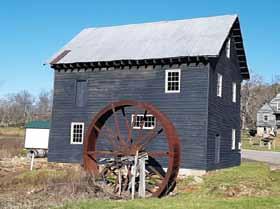
The water wheel was the driving force behind the grinding of wheat, buckwheat, and corn. When the job was done, the resulting flour varieties served as staple items that fed families in the local community as well as the surrounding areas. In fact, it was quite common for people to travel from other states for the sole purpose of purchasing a bag or two of Roberson’s buckwheat flour to make buckwheat cakes: similar in recipe to the more common pancake.
Roberson Mill was built in the 1880’s by John Epperly; the man also responsible for the building of Epperly Mill in Floyd. In those days, Epperly was well known for his masterful craftsmanship. Roberson Mill and many others in Floyd were built in a time when engineering schools were unheard of, yet the evidence still exists today to prove just how talented the builders of these mills were. Epperly and others used old methods of construction that were passed down from generation to generation. Methods that were meant to last. Infact, John Epperly must have taken great pride in his workmanship way back then, as evidenced in the stamping of his name onto a steel arm inside the mill that supports the stone hoist.
Homer Roberson, also known as Papa Roberson, purchased the mill in 1931, the same year his son, Harry Roberson, was born. Papa was well known for his hard work and commitment to the mill. It was his livelihood. At the end of each day, Papa was required to scotch or stop the water wheel from turning. This was to prevent the cogs from turning during the night when the machinery inside
was not in use. If it had been allowed to continue turning, the allimportant millstones would have been ruined from the lack of grain between the stationary bottom stone and the rotating top stone.
This was just one of the many responsibilities of the miller.
Although milling took place from mid-October to mid-December, the operation took much more planning throughout the year. There was a great deal of communication with suppliers and customers, all done without the benefit of modern technology. There was also the endless maintenance of not only the mill, but also of all the machinery and equipment used for delivering the products to homes and local stores.
In the book, “The Water-Powered Mills of Floyd County, Virginia”, written by Ricky Cox and Franklin Webb, Cox talks about how Roberson Mill continued using waterpower even after other mills upgraded their technology.
“Harry Roberson operated the mill under waterpower until the wooden race or flume collapsed about 1970. Electric power was used to grind buckwheat flour on a part-time basis until 1984. Phillip Gettel noted in a 1985 survey of Floyd area mills that a single poplar tree provided the weatherboard siding for one side, and both ends of the 2 1/2 story Roberson mill.”
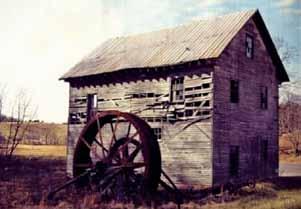
Homer Roberson operated the mill until his death in 1966. It was Homer’s son, Harry, who then picked up the reigns and continued the family business as Roberson’s next miller.
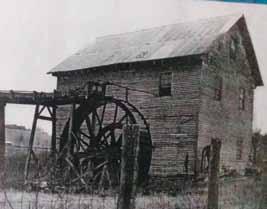
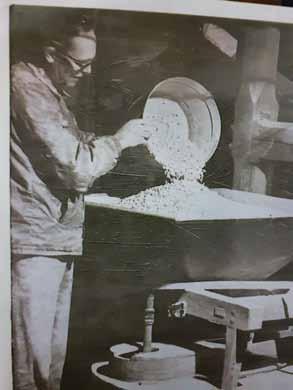
Though Harry currently suffers from advanced dementia, on his more lucid days, his ability to describe the components of the mill’s machinery and the tasks performed by each is truly amazing. If his memory were still intact, he would likely be super excited about the efforts underway to restore this historic structure. He would be beside himself with joy.
And he wouldn’t be the only one. Regina Roberson Cox, daughter of Harry Roberson, tells us how important the mill was for her brother, Timmy. “As far back as memory allows,” she says, “Timmy was continuously researching avenues for ‘fixing’ the mill. As he observed the mill building’s deterioration and collapsing
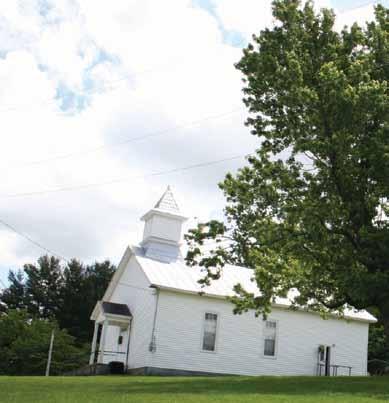

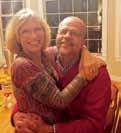
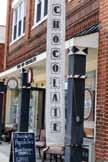




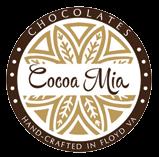


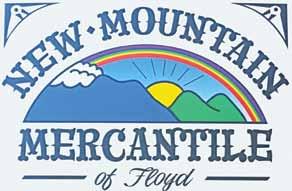




flume, he went to work drawing up diagrams and sketches - to the best of his abilities - depicting alternative methods which might cause the mill to ‘run’ again.”
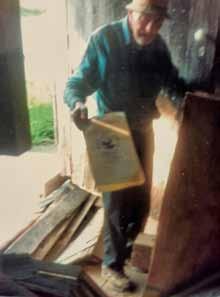
Unfortunately, Timmy Roberson lost his battle with colon cancer in December of 2019. He didn’t have the chance to make his dream come true, and he left too soon to receive the good news about the restoration.
In the early part of 2020, Regina purchased the mill with a commitment to preserve it for future utilization as an educational site. She is excited about future generations exploring the mill’s heritage, as well as learning about the entire process of farm to table nourishment. In the fall of 2020, work was completed to secure the mill’s foundation and replace the exterior siding. The following summer, the exterior was painted to display a rustic, weathered look.

Though the exterior of the mill looks great, there remains much planning and work to be done for the interior. Top priority, however, will be replacing the roof, as there is evidence of rain damage on the third floor. A proposal for a new roof is currently in the works and upcoming fund raising will go toward this repair.
Thanks to the wonderful Floyd community and volunteers, prayers have been answered and plans to continue the restoration are underway. A committee has also been formed to facilitate the planning for future phases of the restoration.
The following fundraising events are planned for this spring:
• A poker run sponsored by Floyd Moose Lodge.
• An upcoming event at Floyd Country Store.
• A bluegrass/gospel music event - along with a silent auction and more - set for 2:00 PM on May 14th at Wildwood General Store, featuring The Comptons.


In addition, Regina and the committee are super excited to announce a cookbook in the works, featuring long time neighbors of Roberson Mill, as well as Harry Roberson’s cousins. One of the highlights will be Velma Roberson Reed’s famous German Chocolate cake recipe. Velma is Harry’s sole surviving sibling.
For updates on these events, and for those wishing to donate or to learn more, please visit online at Robersonmill.com. As time goes on, other phases of the restoration work will also be detailed on the website. The Roberson Mill restoration project can also be found on Facebook by searching Roberson Mill.
Roberson Mill • Regina Cox • www.RobersonMill.com
